Articles
Mobile Banking: The Smartest Way to Manage Your Money
India's digital payments landscape is experiencing unprecedented growth. Statista projections indicate that the mobile payments market is set to reach ₹245 trillion by the financial year 2025, a substantial increase from ₹80 billion in 2015.
Why Going Cashless is the Smart Choice: The Advantages of Digital Payments
Digital Payments Awareness Week is here, and there’s no better time to talk about why going cashless is a game-changer!
What is VPA in UPI and How to Create One?
India's digital payment ecosystem has experienced remarkable growth, with the Unified Payments Interface (UPI) leading the charge.
UPI Lite Transaction Limit and Features Explained
With over 12 billion UPI transactions recorded in January 2024 alone, India's digital payments ecosystem continues to expand at an unprecedented rate.
Understanding Universal Banking Licences in India
A Universal Banking Licence permits a financial institution to offer a wide array of banking services, including commercial and investment banking, under a single umbrella.
How to Fill or Write a Cheque Correctly: A Comprehensive Guide
Cheques remain a significant mode of financial transactions in India, despite the rise of digital payments. Whether for personal or business use, knowing how to fill a cheque correctly is essential to prevent errors, fraud, or rejection.
A Comprehensive Guide to UPI ID
As of 2024, UPI (Unified Payments Interface) has become the backbone of digital payments in India, processing over 12 billion transactions per month with a total transaction value exceeding ₹18 lakh crore.
A Comprehensive Guide to Account Payee Cheque
In the world of banking, the humble cheque continues to play a vital role, even as digital transactions take the lead.
A Quick Guide to Cash Recycler Machine (CRM)
In recent years, banks in India have been rapidly adopting innovative financial technologies to enhance customer experience.
A Comprehensive Guide to mPIN and How to Generate It
No fumbling for cash, no delays—just seamless, secure transactions.
Banks will be Closed on These Days in Karnataka (2025)
Imagine rushing to your bank for an urgent task, only to find the doors closed for a holiday you didn’t anticipate.
A Comprehensive Guide to POS (Point of Sale) Transactions
India's digital payment landscape has experienced remarkable growth, with Point of Sale (POS) transactions playing a pivotal role.
What is CIF Number and How to Find it?
In today's digital banking era, where convenience and security are key, have you ever wondered how banks effortlessly manage your multiple accounts and tailor services just for you?
ATM Security Features: What Banks Are Doing to Protect You
In today's digital age, where cashless transactions are becoming the norm, ATMs play a crucial role in providing convenient access to your hard-earned money.
NEFT for Small Business: Ensuring Secure Fund Transfers for Business Safety
Did you know that according to a report, India is at the top of the list for digital payments? It's interesting to note that India makes more digital payments than the next four top nations put together.
Using UPI for Business: How It Compares With RTGS and IMPS
The global market for digital payments is predicted to increase at a compound annual growth rate (CAGR) of 11.2%.
Navigating the Rules of RTGS Transfers for High-Value Payments
In today's fast-paced world, technology has revolutionised the way we conduct financial transactions.
What is CVV Code in Debit Card and How to Find It?
In today’s digital age, online transactions have become a part of our daily lives. Whether it’s ordering your favourite meal, booking a vacation, or paying utility bills, the convenience of using debit and credit cards is unmatched.
A Guide to the Electronic Clearing Service (ECS): Simplifying India’s Digital Payments
As of 2024, India’s digital payment ecosystem continues to expand, with over 12 billion transactions processed monthly through electronic payment modes, according to industry data.
NACH (National Automated Clearing House): Features and How it Works
Efficient, secure, and seamless payment systems are the backbone of a modern economy.
7 Steps You Should Consider to Ensure Online Banking Security
Navigating the world of online banking can sometimes feel like walking through a maze blindfolded, especially with the increasing incidents of financial frauds.
Decoding Bank Statements: What Every Line Item Means
Your bank statement helps you track your financial transactions. However, it often contains jargon and abbreviations that can be confusing.
Check Bounce: Causes, Charges, Implications and Preventive Measures
A cheque is a trusted financial instrument, but when it bounces, it can cause inconvenience, legal trouble, and financial loss.
MICR Code on Cheque: Meaning, Format and Importance Explained
According to the Reserve Bank of India (RBI), cheque clearing volumes in India continue to account for billions of transactions annually, despite the rise of digital payments.
What is a SWIFT Code?
When transferring money across borders, understanding SWIFT codes is essential.
Difference Between NEFT, IMPS, and RTGS Transfers
In our modern digital world, transferring money has become more convenient and accessible than ever before.
What is IFSC Code and How to Find it?
In the world of modern banking, convenience and security are paramount. Imagine being able to transfer money anywhere in the country with just a few taps on your smartphone.
What is Cheque? Know the Types, Cancellation and How to Request for a Cheque Book
In the digital era where online transactions dominate, cheques remain a cornerstone of financial transactions in India.
How to Write a Cancelled Cheque: A Complete Guide
In the world of banking, there are certain documents that hold special significance despite not being used in the conventional way.
Understanding the RTGS Refund Process for Failed Transactions
We've all experienced the frustration of a transaction error wile transferring funds at some point in our lives.
Understanding How Banks Determine ATM Transaction Limits
We all rely on ATMs for quick and convenient access to cash. But have you ever wondered why there are limits on the amount you can withdraw in one go?
ATM Withdrawal and Transaction Limit Explained
With the Reserve Bank of India (RBI) regulations effective from January 1, 2022, ATM users in India are allowed five free transactions per month across most banks.
How to Resolve Disputes Over ATM Withdrawals: What You Need to Know
Have you ever experienced a situation where money was deducted from your bank account, but you did not receive the cash from the ATM? It can be frustrating and confusing, leaving you wondering what steps to take next.
What are Cash Deposit Machines in ATMs and How to Use Them?
In an era where digital transactions are gaining ground, many people still prefer cash for various reasons.
How to Set Up and Use IMPS for Instant Payments
In an era where speed and convenience are paramount, instant payment solutions have become essential for managing finances.
What is IMPS? A Comprehensive Guide to Immediate Payment Service
IMPS, which stands for Immediate Payment Service is a revolutionary interbank electronic funds transfer system in India.
What is a Small Finance Bank?
Small Finance Banks (SFBs) are specialised financial institutions established with the primary goal of fostering financial inclusion by offering basic banking services to underserved and unbanked segments of society.
How to Transfer Funds from One Bank to Another Using NEFT
In today's digital age, secure transactions, accompanied by convenience, has become the most sought after.
Demystifying MMID (Mobile Money Identifier) How to Use It for IMPS Transfers
IMPS (Immediate Payment Service) is a real-time interbank electronic funds transfer system in India that allows quick and hassle-free daily P2A (person to account) fund transfers of up to ₹5 lakh (per transaction) and up to ₹10 lakh (daily transaction limit).
How to Link Your Aadhaar to Bank Account
In today's digital age, our identities are crucial for various transactions, especially in the banking sector.
How to Track NEFT Transfers: A Guide to Using UTR Numbers
When it comes to making electronic fund transfers, the National Electronic Funds Transfer (NEFT) system is one of the most popular methods in India.
How to Stop or Cancel NEFT Transfer: A Step-by-Step Guide
In today's digital age, we rely heavily on electronic fund transfers to make payments conveniently.
NEFT on Holidays: Understanding Bank Timings
Until 2019, RBI had cut-off timings for online NEFT (National Electronic Funds Transfer) – 8:00 am to 6:30 pm from Monday to Friday and 8:00 am to 12:00 pm on Saturdays.
RTGS Transaction Timings: Everything You Need to Know
RTGS (full form – Real Time Gross Settlement) is a specialised electronic funds transfer system used by banks to facilitate high-value and time-sensitive transactions.
What is NEFT in Banking and How Does it Work?
NEFT stands for National Electronic Funds Transfer. It was launched by the Reserve Bank of India (RBI) in 2005 to facilitate seamless money transfers between bank accounts across India.
What is ATM? Types, Benefits and How to Use
ATM stands for Automated Teller Machine (ATM). Today, ATMs have become a cornerstone of modern banking, providing seamless access to financial services anytime, anywhere.
Decoding RTGS Meaning, Transaction Limit, Fees and Charges and How it Works
RTGS stands for Real-Time Gross Settlement, a system designed for high-value transactions that demand immediate clearing.
Latest Blogs

Telangana Housing Board & KPHB Colony: A Guide to Affordable Urban Housing in Hyderabad
March 14, 2025
As Telangana continues its rapid urbanisation journey, two key housing entities—Telangana Housing Board (THB) and Kukatpally Housing Board Colony (KPHB)—have played critical roles in shaping the state's real estate ecosystem.

Does Checking CIBIL Score Frequently Lower Your Credit Points?
April 07, 2025
Imagine you're planning to apply for a home loan, a credit card, or even a car loan. Naturally, you want to ensure your CIBIL score is in good shape before proceeding.

Explained: Can NRIs Buy an Agricultural Land in India?
April 03, 2025
Real estate investment is often a top priority for Non-Resident Indians (NRIs) looking to retain strong financial ties to India.

How to Improve Your CIBIL Score from 600 to 750: A Step-by-Step Guide
April 02, 2025
Your CIBIL score is like your financial reputation—banks check it before approving loans or credit cards. If your score is hovering around 600, you might face difficulties in securing credit or may get loans with higher interest rates.

What Happens When You Leave Your Savings Account Unused?
April 01, 2025
Imagine waking up one day to find that your hard-earned money is locked away and inaccessible. Sounds stressful, right? This is precisely what happens when you leave your Savings Account inactive for too long.

Unified Pension Scheme (UPS): Everything You Need to Know
March 29, 2025
The Pension Fund Regulatory and Development Authority (PFRDA) has announced the Unified Pension Scheme (UPS) will be operational from April 1, 2025.
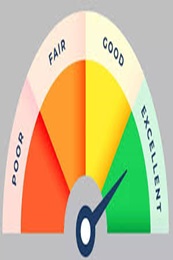
What Does DPD Mean in CIBIL Report?
March 27, 2025
Your CIBIL report is like a financial passport that determines your credibility as a borrower. Whether you’re applying for a home loan, personal loan, or even a credit card, lenders will carefully review your CIBIL report before making a decision.

Are You Eligible for Section 80EE or Section 80EEA Tax Benefits?
March 26, 2025
Imagine this: Ravi, a young IT professional in Bangalore, has just booked his dream home. While planning his finances, he hears about tax benefits under Section 80EE and Section 80EEA but is confused about which one applies to him.

First Salary? 10 Smart & Fun Ways to Make It Count!
March 26, 2025
That magical moment has arrived—you’ve received your first salary! It’s not just money; it’s your hard-earned reward for months (or years) of effort, learning, and persistence.

Difference Between Income Tax and TDS Explained
March 25, 2025
Understanding taxation is crucial for every individual and business in India. Two of the most common terms that taxpayers come across are Income Tax and Tax Deducted at Source (TDS).

Understanding Primary and Collateral Security in Business Loans: Key Differences and Implications
March 20, 2025
Securing a business loan often involves pledging assets to assure the lender of repayment. These assets can be categorized as primary or collateral security, each serving a unique purpose in the lending process.

Loan Application Rejected? Improve Your CIBIL Score Now
March 19, 2025
Rohit and Karan, both in their early 30s, were excited about buying their first homes. They had stable jobs and were ready to apply for a home loan.

Term Deposits Vs. Fixed Deposits: Know the Difference
March 19, 2025
Rohan, a young professional, is looking for a safe place to park his savings. He wants guaranteed returns but is torn between two options—Term Deposits (TDs) and Fixed Deposits (FDs).

Tax on Savings Account Interest: The Fine Print You Can’t Ignore!
March 19, 2025
Savings Accounts are the cornerstone of personal finance, offering a secure place to store funds while earning interest. However, many account holders remain unaware of the tax implications associated with the interest earned on these accounts.

Mobile Banking: The Smartest Way to Manage Your Money
March 19, 2025
India's digital payments landscape is experiencing unprecedented growth. Statista projections indicate that the mobile payments market is set to reach ₹245 trillion by the financial year 2025, a substantial increase from ₹80 billion in 2015.

Why Going Cashless is the Smart Choice: The Advantages of Digital Payments
March 17, 2025
Digital Payments Awareness Week is here, and there’s no better time to talk about why going cashless is a game-changer!

MHADA Lottery Scheme in Maharashtra: A Complete Guide
March 17, 2025
The Maharashtra Housing and Area Development Authority (MHADA) plays a pivotal role in providing affordable housing to various income groups in Maharashtra.

Is Your Bank Account Dormant? Here’s What You’re Losing Out On
March 17, 2025
You’re digging through an old drawer and stumble upon a bank passbook you haven’t used in years. Excited, you rush to check your balance, only to find out—your account is dormant! Now, instead of accessing your money freely, you’re stuck in a loop of paperwork and verification.

Top 6 Benefits of Opening a Digital Fixed Deposit
March 17, 2025
Gone are the days when opening a Fixed Deposit (FD) meant long queues, endless paperwork, and frequent bank visits. In today's fast-paced digital world, banking has evolved, making financial investments simpler and more rewarding.

Top Benefits of Opening a Digital Savings Account
March 15, 2025
In an era where convenience is king, digital banking is revolutionizing the way we manage our money.

Decoding the Meaning of Beneficiary in Banking
March 15, 2025
Have you ever transferred money online and wondered why banks ask you to add a ‘beneficiary’? Or have you seen the term ‘beneficiary’ while setting up financial accounts? Understanding this concept is essential for secure and seamless banking transactions.

Salary Account Vs. Savings Account: What is the Difference?
March 15, 2025
Most Indians start their financial journey with a savings account, while a salary account often marks the beginning of their professional life.

Closing Your Home Loan? Don’t Miss These Crucial Steps for a Hassle-Free Process!
March 14, 2025
Closing a home loan feels like a major achievement. It signifies the end of years of commitment and the beginning of a debt-free life.

Big Relief for Fixed Deposit Investors: Tax-Free Limit on FD Interest Hiked
March 14, 2025
The Union Budget 2025 has brought in significant changes to the Tax Deducted at Source (TDS) rules, offering much-needed financial relief to taxpayers across various categories.

Settlement Deed in Property Transactions: A Complete Guide
March 14, 2025
A Settlement Deed is a legal document used to distribute property among family members or beneficiaries amicably.

A Savings Account That’s Exclusively Designed for Women
February 28, 2025
Did you know that despite making up nearly 48% of India’s population, women account for only 30% of total bank deposits? Moreover, as per RBI data, the gender gap in financial inclusion is still significant, with many women either not having a bank account or having inactive ones.

Letter of Intent in Loans: Everything You Need to Know
February 28, 2025
When applying for a loan, especially a high-value one such as a business loan or mortgage, a Letter of Intent (LOI) plays a crucial role. It acts as a preliminary agreement that outlines the key terms and conditions before finalizing a formal loan contract.

Unlock Maximum Growth: The Best Savings Accounts to Grow Your Money
February 28, 2025
A Savings Account is the foundation of financial security. But with multiple options available, choosing the right one for maximum growth can be overwhelming. Should you prioritize a high-interest rate, liquidity, or additional benefits?

Loan Against Property vs Personal Loan: Which One is Right for You?
February 27, 2025
When faced with a financial need—whether it's for business expansion, medical emergencies, or debt consolidation—you may find yourself choosing between a Loan Against Property (LAP) and a Personal Loan.

Domicile Certificate: A Complete Guide
February 27, 2025
A domicile certificate is an official document issued by the state or union territory (UT) government to certify that an individual is a permanent resident of that particular state or UT.

Home Loan Restructuring vs. Refinancing: Choosing the Right Path for Financial Relief
February 27, 2025
Amit and Ravi, two childhood friends, found themselves in similar situations but chose different paths to navigate their financial difficulties.
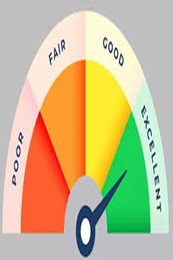
What is Commercial CIBIL Report and Why is it Important for your Business?
February 27, 2025
In the world of business, creditworthiness is everything. Whether you're applying for a business loan, negotiating with suppliers, or seeking investors, your Commercial CIBIL Report plays a crucial role in shaping financial decisions.

Partition Deed: A Complete Guide to Property Division in India
February 27, 2025
Property disputes among family members are common in India, often leading to lengthy legal battles. A Partition Deed is a crucial legal document that helps co-owners divide their jointly owned property amicably, avoiding unnecessary conflicts.

Market Volatility? Keep Your Money Growing with Fixed Deposits (FDs)
February 27, 2025
The Indian stock markets have been experiencing a significant downturn. The Nifty 50 index has dropped by approximately 14% from its peak in September 2024, marking a five-month losing streak—the longest since 1996.

Comprehensive Guide to MSME Registration in India
February 25, 2025
The Micro, Small, and Medium Enterprises (MSME) sector is a crucial pillar of India's economy, contributing nearly 30% to the GDP, 45% of exports, and generating employment for over 11 crore people.

Co-Borrower vs Guarantor in Business Loans: Understanding the Key Differences
February 24, 2025
When applying for a business loan, banks often require additional security to mitigate risks. This is where co-borrowers and guarantors come into play.

Consider These Tax-Saving Instruments and Save on Your Tax Outgo
February 24, 2025
With every financial year-end comes the frantic rush to minimize tax liabilities. Indian taxpayers, whether salaried professionals or business owners, often find themselves navigating a maze of tax-saving instruments.

What is EBLR and How Does it Impact Your Home Loan?
February 19, 2025
Interest rates play a critical role in determining the cost of loans, and for Indian borrowers, the shift to External Benchmark Lending Rate (EBLR) has been a game-changer.

What is VPA in UPI and How to Create One?
February 19, 2025
India's digital payment ecosystem has experienced remarkable growth, with the Unified Payments Interface (UPI) leading the charge.
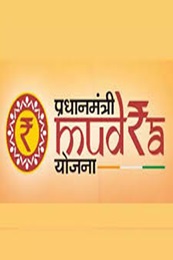
What is PMMY? A Game-Changer for India’s Small Enterprises
February 19, 2025
Launched on April 8, 2015, the Pradhan Mantri Mudra Yojana (PMMY) is a flagship government initiative designed to “fund the unfunded.”

Decoded: How Much Should You Invest in a Fixed Deposit to Earn ₹1 Lakh
February 17, 2025
Let’s assume you invest ₹70,000 in a Fixed Deposit for a tenure of 5 years at an interest rate of 7.20%. Considering you have cumulative FD, where interest pay-out would happen only at the end of the FD tenure

Planning to Invest in High-Interest Fixed Deposit? Consider This Small Finance Bank
February 17, 2025
Fixed Deposits (FDs) continue to be a popular investment choice among Indian consumers. According to the Reserve Bank of India (RBI), term deposits grew by 13.3% YoY in 2024, showcasing their steady demand despite the rise of other investment options.

MSME Form 1: Everything You Need to Know
February 17, 2025
The Indian government has taken significant steps to protect Micro, Small, and Medium Enterprises (MSMEs) from delayed payments. According to a 2023 report by the Ministry of Corporate Affairs (MCA), over ₹10,000 crore worth of payments to MSMEs were delayed beyond the permissible 45-day credit period.
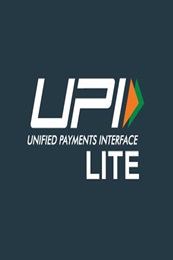
UPI Lite Transaction Limit and Features Explained
February 17, 2025
With over 12 billion UPI transactions recorded in January 2024 alone, India's digital payments ecosystem continues to expand at an unprecedented rate.

How Much FD Returns Would You Get If You Invest ₹1 Lakh for 1 Year?
February 17, 2025
Fixed Deposits (FDs) are one of the safest and most predictable investment options in India. Whether you are a risk-averse investor or simply looking for stable returns, an FD offers security along with assured earnings.

Fixed Capital vs. Working Capital: Understanding the Key Differences
February 17, 2025
Did you know that nearly 30% of businesses fail due to cash flow mismanagement? One of the primary reasons behind financial struggles is the lack of clarity on capital allocation.

Tips and Strategies to Negotiate Business Loan Terms
February 10, 2025
Securing a business loan is often necessary for growth, but did you know that negotiating better loan terms can save you lakhs? According to an RBI report, nearly 35% of Indian SMEs struggle with unfavourable loan terms

Does RBI’s Repo Rate Change Affect Your Home Loan Interest Rate?
February 10, 2025
On April 9, 2025, the Reserve Bank of India (RBI) took a decisive step to stimulate economic growth by cutting the repo rate by 25 basis points, bringing it down to 6%.
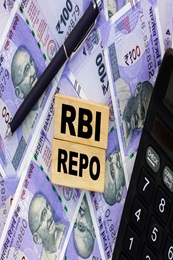
RBI Repo Rate Reforms: Does it Affect Your Fixed Deposit Interest Rate?
February 10, 2025
On 9 April 2025, the Reserve Bank of India (RBI) cut the repo rate by 25 basis points bringing it down to 6%.

Understanding Green PIN: A Comprehensive Guide
February 06, 2025
In today's fast-paced digital world, banks continually innovate to enhance customer convenience and security.

Why You Should Use a Gold Loan During an Emergency
February 06, 2025
Emergencies can happen at any time, and sometimes, they bring along unforeseen financial burdens. Whether it's a medical crisis, urgent home repair, or a sudden business setback, securing immediate funds becomes a priority.

RuPay vs Visa Debit Card: Which One Should You Choose?
February 05, 2025
Imagine this: You're about to make a payment at your favourite online store or swipe your card at a restaurant. But have you ever wondered whether your choice of a RuPay or Visa debit card makes a difference?

Understanding Universal Banking Licences in India
February 05, 2025
A Universal Banking Licence permits a financial institution to offer a wide array of banking services, including commercial and investment banking, under a single umbrella.

A Complete Guide to CGTMSE Government Loan Scheme for MSMEs
February 05, 2025
India's Micro, Small, and Medium Enterprises (MSME) sector is the dynamic engine of the economy, contributing significantly to employment, innovation, and GDP growth.

The Ultimate Guide to No Objection Certificate (NOC) for Loans
February 05, 2025
Let’s assume that you’ve finally finished repaying your home loan or car loan after years of disciplined EMI payments.

How to Save Tax on Rental Income: Tips and Strategies
February 05, 2025
With India’s rental housing market projected to grow at a CAGR of 5.3% from 2023 to 2028, more individuals are investing in rental properties. According to a recent report, around 28% of urban dwellers in India live in rented accommodations.

How to Fill or Write a Cheque Correctly: A Comprehensive Guide
February 05, 2025
Cheques remain a significant mode of financial transactions in India, despite the rise of digital payments. Whether for personal or business use, knowing how to fill a cheque correctly is essential to prevent errors, fraud, or rejection.

Debit Card Hotlisting: What It Means and How to Do It Quickly?
February 05, 2025
Imagine this: You’re at a café, enjoying a cup of coffee, when suddenly you realize your wallet is missing. Panic sets in as you recall that your debit card was inside.

Decoding Monthly Average Balance in Savings Accounts
February 05, 2025
Imagine this—you open your bank statement expecting a healthy balance, but instead, you find a penalty deduction. Confused? The culprit could be your Monthly Average Balance (MAB)!
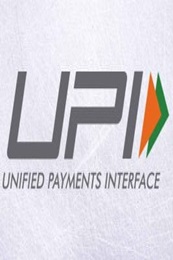
A Comprehensive Guide to UPI ID
February 05, 2025
As of 2024, UPI (Unified Payments Interface) has become the backbone of digital payments in India, processing over 12 billion transactions per month with a total transaction value exceeding ₹18 lakh crore.

What Is FOIR and How It Can Impact Your Loan Approval?
February 04, 2025
When you apply for a loan, your financial health plays a key role in determining whether your application is approved.

A Comprehensive Guide to Account Payee Cheque
February 04, 2025
In the world of banking, the humble cheque continues to play a vital role, even as digital transactions take the lead.

Consider These Do’s and Don’t Before Applying for a Home Loan
January 31, 2025
A home loan is a long-term commitment that requires careful planning and financial prudence. Making informed decisions before applying for a home loan can save you from unnecessary financial strain in the future.

Money Tips: How to Save ₹5,000 Every Month on a ₹30,000 Salary
January 30, 2025
Do you often feel like your salary vanishes before the month ends? Saving money might seem impossible on a ₹30,000 salary, but with the right strategies, you can effortlessly set aside ₹5000 every month—without sacrificing your lifestyle.

Individual Loan or Personal Loan: Which One is Right for You?
January 30, 2025
Individual loan and personal loan are unsecured loans where you don’t have to pledge collateral to avail a loan. However, bot are designed to serve different purposes.

How to Identify Fake Currency Notes and What You Should Do About It
January 30, 2025
Dear reader, last night, while paying the auto driver, I realized my bank server was down, meaning I couldn’t use the UPI apps to make payment. Left with no other option, I handed him a ₹500 note.

Mastering Your Finances with the 50/30/20 Rule: A Comprehensive Guide to Budgeting
January 30, 2025
Managing your finances might feel like a complex task, but the 50/30/20 rule is a straightforward, efficient, and effective way to gain control over your money.

A Comprehensive Guide to Patta Chitta
January 30, 2025
In Tamil Nadu, land records are important for establishing ownership and ensuring transparency in property transactions.

A Quick Guide to Cash Recycler Machine (CRM)
January 29, 2025
In recent years, banks in India have been rapidly adopting innovative financial technologies to enhance customer experience.
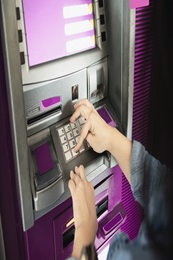
Step-by-Step Process for ATM or Debit Card Generation
January 29, 2025
You’ve just received your brand-new ATM or Debit Card, excited to access your funds seamlessly. But before you can use it, you need to generate a PIN.

Tenancy Agreements: Meaning, Rights and Reasons for Disputes
January 29, 2025
Tenancy agreements are legally binding contracts that specify the terms of occupancy between a tenant and a landlord.

Fixed-Rate Home Equity Loan vs HELOC: Which is Better?
January 29, 2025
Are you contemplating leveraging your home equity but find yourself tangled in the web of choices between a fixed-rate home equity loan and a Home Equity Line of Credit (HELOC)? You're not alone!

A Comprehensive Guide to Conveyance Deed
January 29, 2025
When it comes to real estate transactions, clarity and legal documentation are paramount. One such critical document is the Conveyance Deed.

Dormant Account: Meaning and Activation Process Explained
January 28, 2025
According to a recent report by the Reserve Bank of India (RBI), there are over 10 crore dormant accounts in the country, holding nearly ₹35,000 crore in unclaimed deposits. Dormant accounts, often overlooked by account holders.

How to Save for Down Payment on Your Home: A Complete Guide
January 28, 2025
Banks in India generally finance up to 85% of a property's value, leaving you to cover the remaining as a down payment.

What are Unclaimed Deposits and How to Claim Them?
January 28, 2025
Do you know that as on March 2024, there are unclaimed deposits of ₹78,213 crore lying in bank? It’s a 26% year-on-year jump!

Why Every Business Needs a Current Account
January 28, 2025
In today’s fast-paced business world, having a current account isn’t just a good idea—it’s a necessity.

How a Savings Account Can Be Your Lifeline for Parenthood
January 28, 2025
Parenthood is a beautiful journey filled with countless joys and responsibilities.

Difference Between a Startup and an MSME: A Comprehensive Analysis
January 28, 2025
The entrepreneurial landscape is diverse, encompassing a range of business entities that vary in size, purpose, and goals.
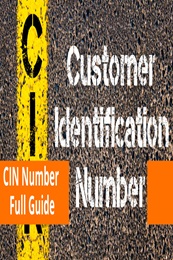
Corporate Identification Number (CIN): A Complete Guide
January 28, 2025
A Corporate Identification Number (CIN) is a unique 21-digit alphanumeric code assigned to companies registered in India by the Registrar of Companies (ROC).

Availing a Home Loan and Investing in Fixed Deposits Can Help You Save Tax: Here’s How
January 27, 2025
When it comes to saving taxes in India, many taxpayers often overlook how strategic use of financial products can double as effective tax-saving tools.

Why Ujjivan's Chakra Loan Is Your Best Bet for Two-Wheeler Financing
January 27, 2025
Aarav, a young delivery executive in bustling Bengaluru, had a dream—owning a two-wheeler.

Important Factors to Consider Before Buying a New Bike
January 27, 2025
Purchasing a new bike in India is an exciting yet significant decision.
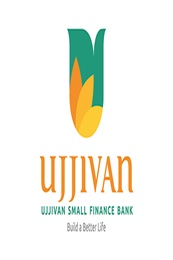
Planning to Open a Savings Account? Choose Ujjivan
January 24, 2025
Imagine earning more than 7% interest just by saving your money – sounds too good to be true? Not with Ujjivan Small Finance Bank!

Securing Your Child's Future: A Guide to Using Fixed Deposits (FDs) for Education
January 24, 2025
Imagine a future where your child has the freedom to pursue their dreams, unburdened by financial constraints.

Income Tax on Gold in India: Everything You Need to Know
January 23, 2025
Gold has long been regarded as a safe haven for investment, offering security and consistent returns over time.

Unlocking the Power of Your Money: The Advantages of Linking Your Savings Account to Your Investments
January 23, 2025
Imagine your money as a symphony—harmonized, smooth, and ever-progressing toward a crescendo of wealth.

The Role of Fixed Deposits in Corporate Financial Planning
January 23, 2025
When it comes to corporate financial planning, one key aspect that businesses and organisations need to consider is how to maximise their returns on surplus funds.

Need Cash? Here’s How Overdraft (OD) Against FD Can Help You
January 23, 2025
An overdraft (OD) against a Fixed Deposit (FD) is one of the fastest and most cost-effective ways to borrow money from a bank without prematurely breaking the FD.

Fixed Deposits as a Tool for Achieving Financial Stability
January 23, 2025
Did you know that Fixed Deposits (FDs) are one of the most trusted financial instruments among Indian households?

A Comprehensive Guide to mPIN and How to Generate It
January 23, 2025
No fumbling for cash, no delays—just seamless, secure transactions.

Banks will be Closed on These Days in Karnataka (2025)
January 22, 2025
Imagine rushing to your bank for an urgent task, only to find the doors closed for a holiday you didn’t anticipate.

Gold Loan Vs Home Loan: Making the Right Choice
January 22, 2025
Both gold loan and home loan are secured loans – you have to pledge collateral to get a loan.

Understanding the Reverse Repo Rate: A Key Component of India's Monetary Policy
January 21, 2025
On 7 February 2025, the Reserve Bank of India (RBI) cut the repo rate by 25 basis points, marking the first rate cut in 5 years. The current repo rate stands at 6% and the reverse repo rate at 3.35%.

Benefits of Gold Loan: Unlocking Value from Your Gold
January 21, 2025
Gold has always been a symbol of wealth and security. But did you know that it can also be your financial lifeline in times of need?

How to Manage Money in the Gig Economy: A Complete Guide
January 20, 2025
The gig economy in India has seen explosive growth in recent years, with platforms like Swiggy, Zomato, Uber, and UrbanClap contributing to a workforce of nearly 7.7 million gig workers in 2023, according to a NITI Aayog report.

From Piggy Bank to Digital Dynamo: Unlocking the Power of Your Savings Account for Technology Goals
January 20, 2025
In a bustling city, where technology is more than a tool—it’s a lifestyle—Meera, a young software developer, found herself in a dilemma.

A Complete Guide on How to Claim a Fixed Deposit After Account Holder’s Death
January 20, 2025
Losing a loved one is never easy, and during such a difficult time, dealing with financial matters can add further stress to the situation.

The Lifeline in Your Wallet: Using a Savings Account for Unexpected Events
January 20, 2025
It’s a sunny Tuesday morning, and you’re sipping your coffee, scrolling through social media. Life feels predictable, comfortable.

How a Dedicated Savings Account Can Fund Your Education and Professional Development
January 20, 2025
Imagine this: You’ve just discovered an advanced certification course that could elevate your career to new heights.

Fixed Deposit vs Certificate of Deposit: A Comprehensive Guide
January 20, 2025
Fixed Deposits (FDs) and Certificates of Deposit (CDs) are two popular time-deposit investment options offering fixed returns.

How to Use a Savings Account to Fund a Career Break or Sabbatical
January 18, 2025
Did you know a career break can boost your productivity and job satisfaction?

What is EMI and How is it Calculated?
January 18, 2025
Imagine standing at the showroom, eyeing the latest scooter or a brand-new car.

FD Nominee vs Legal Heir: A Tale of Asset Transfer and It’s Complexities
January 18, 2025
Imagine this: Anil, a middle-aged professional living in Mumbai, has worked hard his entire life. He opened a fixed deposit account years ago to secure his family’s future.

Top 10 Reasons Why Your Business Loan Application Was Rejected
January 18, 2025
Rajesh, a passionate entrepreneur from Pune, had been running a small garment business for five years.

Comprehensive List of Businesses That Fall Under MSME in India
January 18, 2025
India's Micro, Small, and Medium Enterprises (MSMEs) are the backbone of the country's economy.
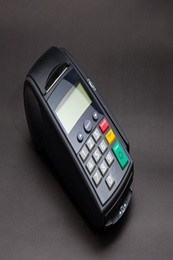
A Comprehensive Guide to POS (Point of Sale) Transactions
January 17, 2025
India's digital payment landscape has experienced remarkable growth, with Point of Sale (POS) transactions playing a pivotal role.

What is CIF Number and How to Find it?
January 17, 2025
In today's digital banking era, where convenience and security are key, have you ever wondered how banks effortlessly manage your multiple accounts and tailor services just for you?
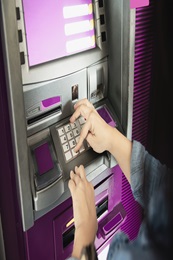
ATM Security Features: What Banks Are Doing to Protect You
January 17, 2025
In today's digital age, where cashless transactions are becoming the norm, ATMs play a crucial role in providing convenient access to your hard-earned money.

NEFT for Small Business: Ensuring Secure Fund Transfers for Business Safety
January 17, 2025
Did you know that according to a report, India is at the top of the list for digital payments? It's interesting to note that India makes more digital payments than the next four top nations put together.

Using UPI for Business: How It Compares With RTGS and IMPS
January 17, 2025
The global market for digital payments is predicted to increase at a compound annual growth rate (CAGR) of 11.2%.

Navigating the Rules of RTGS Transfers for High-Value Payments
January 17, 2025
In today's fast-paced world, technology has revolutionised the way we conduct financial transactions.

ELSS or Tax-Saving Fixed Deposit (FD): Which One is More Suitable for You?
January 17, 2025
In the vibrant streets of Mumbai, two close friends, Arjun and Ravi, were planning their financial future.

How Fixed Deposits Can Help You Generate Monthly Income
January 16, 2025
Imagine waking up to a quiet morning, sipping your favourite tea, and feeling the satisfaction of knowing that your finances are working for you.

What is a Standalone FD? Unlocking the Flexibility of Independent Fixed Deposits
January 16, 2025
In the world of Fixed Deposits (FDs), a standalone FD is a unique and flexible financial product that allows you to invest without the need to open or maintain a savings account with the bank.

Market Downturn: Is This the Right Time to Invest in Fixed Deposits?
January 16, 2025
Stock market investors have a problem. The Sensex tumbled nearly 3,000 points at the end of 2024.

Complete Guide to BBMP e-Khata Bangalore
January 16, 2025
Managing property records in Bangalore has always been a cumbersome task, often involving endless paperwork and manual processes.

What is the Difference Between Debit Card PIN and CVV Number?
January 16, 2025
Imagine you're shopping online for a new pair of shoes. You find the perfect pair, add them to your cart, and proceed to checkout.

Can You Get a Business Loan Without Filing ITR?
January 16, 2025
Starting or expanding a business often requires financial support, but not every entrepreneur has an impeccable financial record.

Cash Credit vs. Overdraft: Which is Better for Your Business?
January 16, 2025
In the fast-paced world of business, maintaining a steady cash flow is crucial for survival and growth.

A Comprehensive Guide on Mortgage Deed and Its Importance
January 15, 2025
The demand for home loans in India has surged by over 15% in 2024, largely driven by low-interest rates and the growing middle-class population.

10 Smart Ways to Reduce Your Home Loan EMI
January 15, 2025
Buying a home is a dream come true for many. But the financial burden of a hefty home loan EMI can be overwhelming.

What Happens If You Miss a Home Loan EMI? Consequences and Solutions
January 15, 2025
Owning a home is a cherished dream for many. A home loan often makes this dream a reality by providing the financial assistance required to purchase a property.

Land Survey Number: A Complete Guide on How to Find and Verify It
January 15, 2025
Buying land is a significant investment, and ensuring the legality of the property is crucial. One of the essential elements in verifying land ownership is the Land Survey Number.

7 Common Debit Card Mistakes and How to Avoid Them
January 08, 2025
Debit cards have become an essential part of our daily lives, enabling us to make secure and convenient transactions.
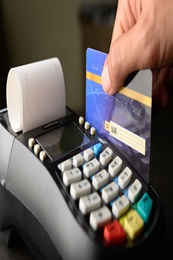
Benefits of Using RuPay Debit Cards: A Complete Overview
January 08, 2025
Debit cards have become an important tool for managing our finances, especially in the digital age.

What is CVV Code in Debit Card and How to Find It?
January 01, 2025
In today’s digital age, online transactions have become a part of our daily lives. Whether it’s ordering your favourite meal, booking a vacation, or paying utility bills, the convenience of using debit and credit cards is unmatched.

Understanding Different Types of Debit Cards: Which Card is Right for You?
December 31, 2024
In today's digital age, debit cards have become an essential tool for managing our finances.
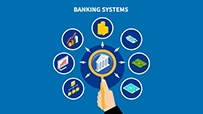
A Guide to the Electronic Clearing Service (ECS): Simplifying India’s Digital Payments
December 31, 2024
As of 2024, India’s digital payment ecosystem continues to expand, with over 12 billion transactions processed monthly through electronic payment modes, according to industry data.

Steps to Calculate Your Gold Loan Eligibility
December 31, 2024
Have you ever considered using your gold assets to secure a loan? Gold loans are an increasingly popular financial solution that allows you to leverage your gold jewellery or ornaments for quick access to funds.

How to Maximise Your Loan Amount with a High Gold Loan-to-Value Ratio
December 31, 2024
Are you looking to secure a loan using your gold assets? One of the crucial factors that determine the loan amount you can get is the Loan-to-Value (LTV) ratio.

Gold Loan Renewal: How to Extend Your Loan Tenure
December 30, 2024
When you take a gold loan, you are required to repay the loan amount within a specified tenure.

Gold Loan Disbursement Process: What to Expect
December 30, 2024
The Indian gold loan market has experienced significant growth, with its value reaching approximately ₹7.1 lakh crore in 2024.

Understanding Gold Loan Margin Call: What Borrowers Should Know
December 30, 2024
Gold loans are one of the most popular financing options in India, with the market growing to ₹7.1 lakh crore in 2024.

The Impact of Gold Loan on Your CIBIL/Credit Score
December 30, 2024
When faced with financial emergencies or important expenses like education or weddings, many people turn to loans to meet their needs.

How to Avoid Common Gold Loan Mistakes?
December 30, 2024
Gold loans have become increasingly popular in India as a quick and convenient way to meet financial needs.

A Detailed Look at Gold Loan Fees and Charges
December 30, 2024
Gold has always been a valuable asset in Indian households. It holds sentimental value, but it can also be a great financial resource during challenging times.

How the Gold Loan Market Has Grown Over the Last Decade
December 30, 2024
The gold loan market has witnessed significant growth over the past decade, largely driven by robust economic trends.

What is a Home Loan Top-Up?
December 30, 2024
If you’re repaying a home loan and need additional funds for purposes like home renovation or upgrading your property, a home loan top-up could be the ideal solution.

9 Easy Ways to Reduce Home Loan Interest Rates
December 26, 2024
Did you know that even a 1% reduction in your home loan interest rate can save you thousands, if not lakhs, of rupees over the loan tenure?

Should You Apply for a Business Loan or Personal Loan to Fund Your Business?
December 26, 2024
Starting or expanding a business often requires a substantial financial investment. While you may consider dipping into personal savings or applying for a personal loan, a business loan can be a more effective and structured solution.

What is Working Capital Loan for MSMEs?
December 26, 2024
In India, Micro, Small, and Medium Enterprises (MSMEs) contribute significantly to the economy, accounting for over 30% of India’s GDP and employing more than 110 million people.

Online vs Offline Business Loan: Pros and Cons
December 26, 2024
According to recent studies, the global business loan market is projected to reach USD 12.15 trillion by 2027, driven by increasing demand from small and medium-sized enterprises (SMEs).

How Technology is Simplifying MSME Loan Management?
December 26, 2024
In today’s fast-paced digital era, technology has become a game-changer across industries.
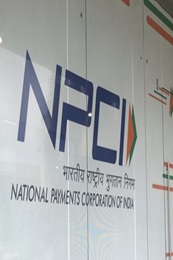
NACH (National Automated Clearing House): Features and How it Works
December 26, 2024
Efficient, secure, and seamless payment systems are the backbone of a modern economy.

7 Steps You Should Consider to Ensure Online Banking Security
December 26, 2024
Navigating the world of online banking can sometimes feel like walking through a maze blindfolded, especially with the increasing incidents of financial frauds.

Decoding Bank Statements: What Every Line Item Means
December 24, 2024
Your bank statement helps you track your financial transactions. However, it often contains jargon and abbreviations that can be confusing.

Zero Balance Savings Account: Features and Benefits Explained
December 24, 2024
Savings accounts can be broadly categorised into two categories – accounts that come with minimum monthly balance maintenance requirements and accounts that come with zero monthly balance maintenance requirements.

Gold Loan Repayment Options: Bullet Repayment vs EMI
December 24, 2024
Gold loans are gaining traction, especially because of its simple eligibility criteria, affordable interest rates compared to personal loans and quick disbursal process.

How Recurring Deposits Can Boost Financial Confidence and Usher in Peace of Mind?
December 24, 2024
Investing and saving money not only provides financial security but also offers psychological benefits that contribute to overall well-being.

Understanding the Role of Recurring Deposits in Corporate Finance
December 23, 2024
Building a secure financial future is a goal that many individuals and businesses strive to achieve.

A Comprehensive Guide to Recurring Deposit Account Closure Procedures
December 23, 2024
Closing a recurring deposit account can be a complex process, but it doesn't have to be. Whether you need to withdraw funds for an emergency or want to close the account entirely, understanding the procedures involved is crucial.

Recurring Deposits: Why it Should Be a Part of Your Investment Portfolio
December 23, 2024
In today’s fast-paced financial world, it’s easy to get lost in the maze of investment options.

What is National Pension System (NPS) and How it Works?
December 23, 2024
The National Pension System (NPS) is a government-backed retirement savings scheme designed to provide financial security to Indian citizens in their golden years.

What is the Difference Between Individual and Non-Individual Current Account?
December 23, 2024
Current Accounts offer an essential gateway to simplify your daily financial transactions. You can choose a Current Account based on how you wish to manage your finances.

Gold Loan Foreclosure: Charges and What to Consider
December 23, 2024
If you're considering closing your existing Gold Loan, it's essential to understand the process of foreclosure and the factors to consider before closing your loan.

Can You Get Tax Benefits on a Gold Loan?
December 23, 2024
Gold loans have emerged as a popular financing option for many Indians due to their quick processing, flexible repayment options, and no restrictions on end-use.

How to Use a Gold Loan EMI Calculator: A Complete Guide
December 21, 2024
It’s better to calculate your loan EMI before taking a loan so that you can plan your finances better.

Difference Between Gold Loans and Personal Loans: Which is Better?
December 21, 2024
When faced with financial needs, many of us turn to loans as a solution.

Debunking Common Gold Loan Myths
December 21, 2024
Gold is not only considered a symbol of wealth and prosperity but is also seen as a valuable resource that can be utilised during times of financial need.

Check Bounce: Causes, Charges, Implications and Preventive Measures
December 20, 2024
A cheque is a trusted financial instrument, but when it bounces, it can cause inconvenience, legal trouble, and financial loss.

7 Ways to Manage Business Loan Repayments Effectively
December 20, 2024
Navigating the complexities of business loan repayments can seem daunting.

A Guide to Preparing Financial Statements for MSME Loan
December 20, 2024
Navigating the complexities of securing an MSME Loan can seem daunting, especially when it comes to the preparation of financial statements.

The Role of Credit Score in MSME Loan Approval
December 20, 2024
The CIBIL or credit score determines your creditworthiness and plays a pivotal role in securing an MSME or business loan.

MICR Code on Cheque: Meaning, Format and Importance Explained
December 20, 2024
According to the Reserve Bank of India (RBI), cheque clearing volumes in India continue to account for billions of transactions annually, despite the rise of digital payments.

What is a SWIFT Code?
December 20, 2024
When transferring money across borders, understanding SWIFT codes is essential.

Difference Between NEFT, IMPS, and RTGS Transfers
December 20, 2024
In our modern digital world, transferring money has become more convenient and accessible than ever before.

What is Gift Deed?
December 20, 2024
Gift-giving is a cherished tradition in Indian culture, symbolizing generosity and goodwill.

Current Account 101: Meaning, Features and Types
December 19, 2024
Banks offer different types of interest-bearing accounts – Savings Accounts, Fixed Deposits, Recurring Deposits, etc.

Can You Convert Your Savings Account to a Current Account?
December 19, 2024
When it comes to managing our finances, having the right type of bank account is crucial. In India, 78% of the population has a bank account, and the two popular banking options are Savings Accounts and Current Accounts.
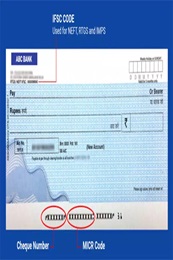
What is IFSC Code and How to Find it?
December 19, 2024
In the world of modern banking, convenience and security are paramount. Imagine being able to transfer money anywhere in the country with just a few taps on your smartphone.

What is Cheque? Know the Types, Cancellation and How to Request for a Cheque Book
December 19, 2024
In the digital era where online transactions dominate, cheques remain a cornerstone of financial transactions in India.

How to Write a Cancelled Cheque: A Complete Guide
December 19, 2024
In the world of banking, there are certain documents that hold special significance despite not being used in the conventional way.

Total Cost of a Two-Wheeler Loan: How to Calculate It?
December 18, 2024
Planning to purchase a new bike or scooter? Avail a bike loan and turn your dream into reality! With bike loans or two-wheeler loans, you can get up to 100% financing of the total cost of the vehicle.

Home Insurance vs Home Warranty: Key Differences Explained
December 18, 2024
Owning a home is a dream come true for many. It's where we build our lives, create memories, and find solace.

The Multiple Benefits of a Joint Home Loan Explained
December 18, 2024
Taking joint Home Loan has several advantages. You not only get to share the repayment obligations with the co-borrower (generally, spouse or any other immediate family member), you can also save more on your taxes.

Leveraging Property for Financial Growth: How to Make More Money
December 18, 2024
Investing in real estate has become a popular choice for diversifying investment portfolios and increasing net worth.

7 Smart Strategies to Repay Home Loan Faster
December 18, 2024
Managing and repaying your home loan faster, not only improves your financial stability, but can also save you money in the long term.

Best Home Renovation Tips for 2025
December 18, 2024
With the New Year around the corner, it’s time to keep that checklist ready. If renovating your house has made it to your list of items to tick off in 2025, keep reading this blog.

Preparing to Buy a House? Follow These Steps
December 18, 2024
Buying a house is arguably one of the most significant milestones in life. For many, it represents stability, achievement, and personal progress.

How Prepaying Your Home Loan Can Help You Save on Interest
December 17, 2024
In on of the blogs, we have outlined how home loan part payment works. Your Home Loan,, barring processing fees, has two components – the principal amount (the loan amount disbursed) and the interest component

Two-Wheeler Loan Interest Rates: How to Get Low-Interest Loan
December 17, 2024
In India, two-wheelers have become an essential mode of transportation. They offer freedom, convenience, and a cost-effective way to navigate through traffic.

How to Use Home Loans for Buying a Second House or Vacation Property
December 17, 2024
Dreaming of having a second home or vacation property? Many people aspire to have a space they can retreat to and enjoy leisure time with their loved ones.

Using Technology for Home Buying Research
December 17, 2024
In today's digital era, technology has revolutionised almost every aspect of our lives, including how we buy homes.

Home Loan vs HRA: Which One Can Help You Save More on Tax?
December 17, 2024
Both home loan and HRA (House Rent Allowance) come with tax benefits, albeit under different Income Tax laws.

Know The Benefits of Buying a Home Before Turning 30
December 16, 2024
Buying a home is one of the most significant milestones in anyone's life.

Understanding the RTGS Refund Process for Failed Transactions
December 16, 2024
We've all experienced the frustration of a transaction error wile transferring funds at some point in our lives.

Understanding How Banks Determine ATM Transaction Limits
December 16, 2024
We all rely on ATMs for quick and convenient access to cash. But have you ever wondered why there are limits on the amount you can withdraw in one go?

ATM Withdrawal and Transaction Limit Explained
December 16, 2024
With the Reserve Bank of India (RBI) regulations effective from January 1, 2022, ATM users in India are allowed five free transactions per month across most banks.

How to Resolve Disputes Over ATM Withdrawals: What You Need to Know
December 13, 2024
Have you ever experienced a situation where money was deducted from your bank account, but you did not receive the cash from the ATM? It can be frustrating and confusing, leaving you wondering what steps to take next.

What are Cash Deposit Machines in ATMs and How to Use Them?
December 12, 2024
In an era where digital transactions are gaining ground, many people still prefer cash for various reasons.

How to Set Up and Use IMPS for Instant Payments
December 12, 2024
In an era where speed and convenience are paramount, instant payment solutions have become essential for managing finances.

What is IMPS? A Comprehensive Guide to Immediate Payment Service
December 06, 2024
IMPS, which stands for Immediate Payment Service is a revolutionary interbank electronic funds transfer system in India.

What is a Small Finance Bank?
December 06, 2024
Small Finance Banks (SFBs) are specialised financial institutions established with the primary goal of fostering financial inclusion by offering basic banking services to underserved and unbanked segments of society.

How to Transfer Funds from One Bank to Another Using NEFT
December 05, 2024
In today's digital age, secure transactions, accompanied by convenience, has become the most sought after.

Demystifying MMID (Mobile Money Identifier) How to Use It for IMPS Transfers
December 05, 2024
IMPS (Immediate Payment Service) is a real-time interbank electronic funds transfer system in India that allows quick and hassle-free daily P2A (person to account) fund transfers of up to ₹5 lakh (per transaction) and up to ₹10 lakh (daily transaction limit).

How to Link Your Aadhaar to Bank Account
December 05, 2024
In today's digital age, our identities are crucial for various transactions, especially in the banking sector.

How to Track NEFT Transfers: A Guide to Using UTR Numbers
December 05, 2024
When it comes to making electronic fund transfers, the National Electronic Funds Transfer (NEFT) system is one of the most popular methods in India.

How to Stop or Cancel NEFT Transfer: A Step-by-Step Guide
December 05, 2024
In today's digital age, we rely heavily on electronic fund transfers to make payments conveniently.

Home Loan Processing Fees and Charges
December 04, 2024
Thinking about getting a home loan? Well, there’s a little more to it than just comparing interest rates.

NEFT on Holidays: Understanding Bank Timings
December 04, 2024
Until 2019, RBI had cut-off timings for online NEFT (National Electronic Funds Transfer) – 8:00 am to 6:30 pm from Monday to Friday and 8:00 am to 12:00 pm on Saturdays.

RTGS Transaction Timings: Everything You Need to Know
December 04, 2024
RTGS (full form – Real Time Gross Settlement) is a specialised electronic funds transfer system used by banks to facilitate high-value and time-sensitive transactions.

What is NEFT in Banking and How Does it Work?
December 04, 2024
NEFT stands for National Electronic Funds Transfer. It was launched by the Reserve Bank of India (RBI) in 2005 to facilitate seamless money transfers between bank accounts across India.
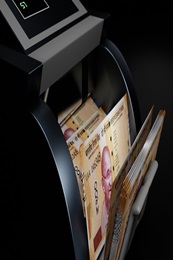
What is ATM? Types, Benefits and How to Use
December 04, 2024
ATM stands for Automated Teller Machine (ATM). Today, ATMs have become a cornerstone of modern banking, providing seamless access to financial services anytime, anywhere.

Decoding RTGS Meaning, Transaction Limit, Fees and Charges and How it Works
December 04, 2024
RTGS stands for Real-Time Gross Settlement, a system designed for high-value transactions that demand immediate clearing.

Current Accounts for Retail Businesses: Managing Daily Transactions
December 03, 2024
In the fast-paced world of retail, efficient financial management is crucial for success.

Current Account for Large Corporations: Managing High-Volume Transactions
December 03, 2024
Running a successful business requires efficient financial management, especially when it comes to handling high-volume transactions.

How to Choose a Recurring Deposit Tenure that Matches Your Financial Goals
December 03, 2024
Choosing the right Recurring Deposit (RD) tenure is important for achieving your financial goals.

How to Use RERA to Check Project Details
December 03, 2024
Buying a home is a dream for many, but it can be slightly overwhelming for few. From finding the right property to getting home loan approval, there are several factors to consider.

Should You Rent or Buy a House with Home Loan?
December 03, 2024
The decision to buy or rent a house is one of the most significant financial choices you'll make. It impacts not just your current lifestyle but also your long-term financial stability.

The Role of Property Valuation in Home Loan Approval
December 03, 2024
As you embark on your home buying journey, understanding the role of property valuation in the home loan approval process is crucial.

How to Plan for Inflation-Protected Returns with High-Interest Fixed Deposits
November 29, 2024
In recent years, India's inflation rate has risen noticeably, prompting the Reserve Bank of India (RBI) to raise the repo rate by 250 basis points from May 2022.

Fixed Deposits vs. Government Bonds: Which is Safer?
November 29, 2024
When it comes to investing our hard-earned money, safety is always a top priority.

How to Navigate Financial Planning for Major Life Events
November 29, 2024
Life events such as marriage, starting a family, buying a home, career changes, and retirement often trigger significant shifts in your financial situation.

Financial Security Planning: 5 Key Principles To Follow
November 29, 2024
Imagine living without the constant worry about money. That’s what effective financial security planning can offer.

Financial Planning for MSMEs Seeking Loans: Tips and Strategies
November 29, 2024
Financial planning is essential for Micro, Small, and Medium Enterprises (MSMEs) seeking loans, as it helps them navigate the complexities of securing financial support while ensuring sustainable growth.

Top 8 Government Business Loan Schemes for MSMEs
November 28, 2024
Micro, Small, and Medium Enterprises (MSMEs) are the backbone of India's economy, contributing around 30% to the GDP and employing over 11 crore people.

8 Tips to Consider to Afford a House in 2025
November 28, 2024
Buying a house is a milestone many of us aim to achieve. However, the financial aspect of purchasing a home can seem daunting.

How to Transfer Property Ownership in India: A Comprehensive Guide
November 28, 2024
With all the legal formalities involved. transferring property ownership in India could be slightly challenging if you aren’t aware of the nitty-gritties of it.

A Complete Guide to Property Tax
November 28, 2024
Property tax, also known as house tax, is levied by municipal authorities in India on real estate properties.

Understanding the Process of Home Loan Legal Verification
November 28, 2024
When it comes to buying a home, there are several important steps in the process that must be followed.

Tips to Manage Your Home Loan During Financial Crises
November 28, 2024
Managing a home loan during financial crises can be overwhelming, but with the right strategies, it is possible to navigate through challenging times without compromising your financial stability.

How Recurring Deposits are Evolving with Technological Advancements
November 27, 2024
In today's fast-paced world, individuals are constantly seeking reliable investment avenues to secure their financial future.

The Benefits of Recurring Deposits in High-Interest Rate Environments
November 27, 2024
Saving money is an essential part of building wealth and achieving financial goals. If you're looking for a reliable way to save, consider opening a Recurring Deposit (RD) Account.

How to Close Current Account: Steps and Considerations
November 27, 2024
Want to close a Current Account? Understanding the account closure process is crucial, whether you're switching banks or consolidating your finances.

The Role of a Current Account in Cash Flow Management
November 27, 2024
Effective cash flow management is vital for business success, and a current account is a primary tool in this process.

Current Account Statements: How to Read and Understand Your Bank Statement
November 27, 2024
Current account statements are essential financial documents that provide a detailed record of your business transactions.

Current Account vs Savings Account: Which is Right for You?
November 27, 2024
There are significant differences between a Current Account and a Savings Account.

The Process of Opening a Joint Current Account
November 27, 2024
A joint current account is a shared business account that allows multiple individuals to manage finances together.

Key Factors to Consider Before Opening a Current Account
November 27, 2024
Are you thinking about opening a Current Account? It's important to carefully consider this decision, as it can shape your financial operations.
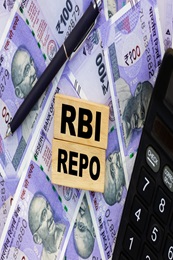
A Comprehensive Guide to Repo Rate and How it Works
November 26, 2024
Have you ever noticed that sometimes home loans become more expensive, or that the interest on your Fixed Deposit changes, even though you didn't do anything differently?

MCLR vs Repo Rate in Home Loan: Understanding the Difference
November 26, 2024
Did you know that even a subtle 0.25% change in the Reserve Bank of India's (RBI) repo rate can ripple through the entire economy, affecting everything from your home loan EMI to the interest on your business loan?

Comprehensive Guide to TDS: Understanding Tax Deducted at Source
November 26, 2024
Are you aware of the recent reductions in the TDS (Tax Deducted at Source) rates for certain transactions?

Tips and Strategies on How to Save for Home Renovation
November 26, 2024
Home renovation is an exciting yet expensive undertaking that can breathe new life into your living space.

Decoding Stamp Duty and Registration Charges in Karnataka
November 26, 2024
Did you know that the Karnataka Stamps and Registration Department generated a record revenue of ₹20,837 crore this year?

Home Loan Tax Benefits Under Section 80EEA of the I-T Act, 1961
November 26, 2024
One of the significant advantages of availing a Home Loan is that you can enjoy multiple tax benefits that helps in reducing your tax outgo.

What is Relinquishment Deed in Property Transactions?
November 26, 2024
A relinquishment deed is a legal document used when someone gives up their rights or ownership of property or asset.

MCGM Property Tax: How to Pay Property Tax in Mumbai
November 25, 2024
MCGM stands for Municipal Corporation of Greater Mumbai. Residents of Mumbai are mandated to pay property tax every year towards MCGM.

BBMP Bangalore Property Tax: Everything You Need to Know
November 25, 2024
According to the Bruhat Bengaluru Mahanagara Palike (BBMP) data, there are around 2.64 lakh property owners who are yet to pay property tax.

How You Can Use Your Savings Account to Realise Your Hobbies
November 25, 2024
Are you passionate about your hobby but worried about the financial strain it might put on your wallet?

How Goal-based Savings Accounts Can Help You Achieve Your Financial Objectives
November 25, 2024
Having a goal-based savings account offers several key benefits that make it an excellent tool for individuals who want to save efficiently and stay focused on their financial objectives.

How to Save Smartly for a Dream Wedding: A Step-by-Step Guide
November 25, 2024
Your wedding day is one of the most special moments in your life, but it can also be a significant financial undertaking.

5 Benefits of MSME Loans for Small Businesses that can Propel Growth
November 25, 2024
Starting a small business can be an exciting endeavour, but it often comes with its fair share of financial challenges.

Understanding Micro Loan Tenure and Repayment Terms: A Comprehensive Guide
November 25, 2024
Are you considering a micro business loan but feeling overwhelmed by the concept of loan repayment, tenure, and interest rates? Don't worry, you're not alone.

Micro Loans vs Personal Loans: Which One is Right for You?
November 25, 2024
Both micro loans and personal loans can be used to meet capital requirements for business.

Property Market Rates vs Circle Rates: What You Need to Know
November 25, 2024
When you’re considering buying a property, understanding the financial landscape is crucial.

Difference Between Co-Signer and Co-Applicant in Home Loan
November 20, 2024
When securing loans, particularly Home Loans, you’re either a co-applicant, co-owner, co-borrower or co-signer.

Micro Business Loan for Startups: A Small Step Towards Big Dreams
November 20, 2024
Starting a business requires capital, and for many aspiring entrepreneurs, securing seed funding can seem like an insurmountable challenge.

Navigating the Legalities of MSME Loan
November 20, 2024
Navigating the legal terrain of MSME loans can often seem daunting. As a small or medium enterprise owner

Integrating Recurring Deposits for Sustainable Investment Strategy
November 20, 2024
Investing wisely is essential for long-term financial stability and growth.

How Recurring Deposits Could Help in Reducing Debt
November 19, 2024
For many of us, debt can be a significant burden that weighs us down financially and emotionally.

How to Diversify Your Investment Portfolio with Recurring Deposits
November 19, 2024
Remember how our parents used to tell us to keep our investments diversified to ensure all is not lost when there’s market downturn?

Income Tax on Recurring Deposit Interest: Know the Implications
November 19, 2024
Did you know the interest earned on Recurring Deposits (RDs) is taxable under the Income Tax Act, 1961? As a mandate, you have to add the interest earned on RD in a financial year to your total income under 'Income from Other Sources'.

The Impact of Digital Platforms on Recurring Deposit Accessibility
November 19, 2024
In today's fast-paced world, digital platforms have transformed the way we manage our finances.

Analysing the Risks and Returns of Recurring Deposits in Different Economic Climates
Recurring deposits (RDs) are gaining popularity in India, especially in this seemingly gloomy bearish market.

Current Account Fees and Charges: What to Expect
November 19, 2024
Most small to large scale businesses and traders have a Current Account. These accounts are non-interest bearing accounts that are designed to simplify day-to-day business transactions.

Understanding Overdraft Facility in Current Account
November 19, 2024
Cash crunch is not uncommon in businesses. Thanks to overdraft facility in current accounts, you can tackle such emergencies without getting into high-interest debt.

Can You Use a Current Account for Personal Expenses?
November 19, 2024
Current accounts are meant for simplifying your daily business transactions.

How Recurring Deposits Can Help Entrepreneurs Build a Financial Cushion
November 16, 2024
As an entrepreneur, financial stability is always a top priority. While focusing on growing your business, it's crucial to also build a financial cushion that can support you during lean periods or unexpected challenges.

How Recurring Deposits Fit into the Broader Picture of Financial Inclusion
November 16, 2024
Financial inclusion is crucial to empowering individuals and communities to take control of their financial well-being.

A Guide to Recurring Deposit Fees and Charges
November 15, 2024
Whether you are saving for a future goal or building an emergency fund, Recurring Deposits (RDs) offer a convenient way to save money while earning fixed returns.

Navigating the Recurring Deposit Market: How to Get Better Returns on RD
November 15, 2024
Saving money and building a corpus for the future is a goal many of us strive for. One way to achieve this is through opening a Recurring Deposit (RD) account.

Micro Loans for Agriculture: Financing Small Farmers
November 15, 2024
When it comes to farming and agriculture, farmers often face financial challenges in accessing credit and loans to improve their business.

Exploring Government-Supported Micro Loan Programmes for MSMEs
November 15, 2024
India's micro and small industries, which employ 20 crore people and account for 30% of the nation's GDP, are the backbone of the nation.

How Micro Loans are Propelling Rural Development in India
November 15, 2024
Micro loans are playing a crucial role in driving rural development in India and empowering the rural economy.

Micro Loans vs. P2P Lending: What’s the Difference?
November 15, 2024
According to a recommendation paper submitted by the India SME Forum to the RBI, the estimated $530 billion financing gap for MSMEs has been growing recently

Difference Between Home Equity Loans and Home Loans: Which is Right for You?
November 15, 2024
Whether you're planning to buy a new home or need funds for other purposes, financing options like home equity loans and home loans can help you achieve your goals.

Understanding the Role of Home Loan Agents and Brokers
November 15, 2024
Buying a house is a significant decision that requires careful financial planning. With home loans for properties above ₹75 lakh surging in the past four years

How to Get a Home Loan After Retirement
November 15, 2024
The senior living market in India is predicted to increase significantly from its present $2–$3 billion size to about $12 billion by 2030, due to the ageing population of the nation.

6 Tips to Save Property Tax
November 15, 2024
Are you looking for ways to save on property tax? Property tax is a mandatory charge collected by municipal authorities in India, used for maintaining local infrastructure and civic amenities.

Seasonal Promotions on Two-Wheeler Loans: What's on Offer?
November 14, 2024
Are you in the market for a new two-wheeler? If so, it's worth considering the timing of your purchase.

Financing Your Two-Wheeler Accessories: Loans for Customisation
November 14, 2024
Building a custom motorcycle is a dream for many enthusiasts, but it often comes with financial challenges.

What is MSME Loan? Your Ultimate Guide to Business Financing in India
November 14, 2024
Did you know that India's MSME sector contributes nearly 30% to the national GDP and accounts for almost 45% of the country’s total exports?

How are Government Policies Impacting MSME Loans in India?
November 14, 2024
The growth and success of Micro, Small, and Medium Enterprises (MSMEs) are vital for the Indian economy.

A Simple Guide on Choosing the Right MSME Loan for Your Business
November 14, 2024
Navigating through the myriad loan options can be daunting for any business owner.

How to Use MSME Loans to Expand Your Business?
Whether you're a small business owner or a budding entrepreneur, expanding your business requires capital.

Home Loan Tax Benefits Under Section 24(b)
November 13, 2024
Section 24(b) of the Income Tax Act allows homeowners claim tax deductions for the interest paid towards their home loans.

Home Loan Tax Benefit Under Section 80C of the Income Tax Act
November 13, 2024
Are you aware your Home Loan could help you save up to ₹1.5 lakh on your annual taxes under Section 80C of the Income Tax Act?

Understanding RERA Act: How It Protects Homebuyers in India
November 12, 2024
The Indian real estate sector is poised for transformative growth over the next decade, fuelled by demographic shifts, economic development, and changing consumer preferences.

How to Choose the Right Type of Home Loan Based on Interest Rate
November 12, 2024
There are two types of Home Loan interest rates – fixed rate and floating rate home loans.

What is a Sale Deed in Property Transactions?
November 12, 2024
A sale deed is an important document that not only signifies the transfer of property ownership but also protects the rights of both the parties (buyer and seller) involved in the transaction.

How to Transfer B Khata to A Khata
November 12, 2024
Are you a property owner in Bangalore? If so, you might have come across terms like B Khata and A Khata during your real estate journey.

Home Loan Financial Planning: Best Budgeting Tips and Loan Preparation Ideas
November 12, 2024
Applying for a home loan requires careful planning, especially when it comes to managing your finances.

What is an Encumbrance Certificate and Why Do You Need It?
November 12, 2024
Are you planning to buy or sell a property? Or maybe you're applying for a loan against your property? In any of these scenarios, obtaining an Encumbrance Certificate (EC) is essential.

How to Use Home Loans for Property Investment
November 12, 2024
The real estate sector has always been a lucrative sector for investments. It offers the potential for long-term wealth creation and financial security.

A Guide to Home Loan Origination Fees
November 11, 2024
The process of securing a home loan can be complex and overwhelming, especially when it comes to understanding the various costs involved.

A Deep Dive into the Security Features of Recurring Deposits
November 11, 2024
In Indian banking, Recurring Deposits (RDs) have long been favoured as a secure and systematic savings option.

A Step-by-Step Guide to Setting Up a Recurring Deposit Account for Beginners
November 11, 2024
Saving money is an essential aspect of financial planning, even though about 50% of Indians save just 0 to 20% of their income.

The Role of Recurring Deposits in Retirement Planning
November 11, 2024
Planning for retirement is a crucial aspect of personal finance. It requires careful consideration and investment in the right financial instruments to build a secure retirement corpus.

How to Monitor and Adjust Your Recurring Deposit to Meet Changing Financial Needs
November 11, 2024
Saving money is essential for building wealth and achieving financial goals. One effective way to save is through a Recurring Deposit (RD) account.

How Recurring Deposits Can Help You Prepare for Emergencies
November 11, 2024
Life is full of surprises, and not all of them are pleasant. Emergencies can strike anytime, whether it's a sudden medical expense, a home repair, or even unemployment.

Recurring Deposits as a Conduit for Wealth Accumulation
November 11, 2024
Are you looking to grow your wealth steadily and consistently? Opening a Recurring Deposit (RD) account could help you accumulate wealth over time.

Recurring Deposit Withdrawal Before Maturity: Fees and Other Charges
November 08, 2024
Early withdrawal or pre-closure of RD may attract penalties. Additionally, you would lose out on interest earnings.

Recurring Deposit Interest Rates: What You Need to Know
November 08, 2024
Are you looking for a safe and reliable way to grow your savings? Investing in Recurring Deposits (RDs) can be an excellent option.

Exploring the Advantages of Recurring Deposits for Women
November 07, 2024
In today's world, women are taking charge of their finances, making smart investment decisions, and securing their future.

How Recurring Deposits Can Help You Achieve Financial Freedom
November 07, 2024
Everyone dreams of achieving financial independence – the ability to live comfortably without constantly worrying about money.

The Impact of Economic Changes on Recurring Deposit Interest Rates
November 07, 2024
A slight economic change can affect the interest you earn on your recurring deposits. For example, when inflation rises, the value of your savings might decrease, impacting your overall returns.

Analysing the Historical Performance of Recurring Deposit Rates
November 07, 2024
Whether you are a conservative investor looking for a safe savings option or someone wanting to build a corpus through regular contributions, Recurring Deposits (RDs) have long been a popular choice in India.

The Benefits of Automating Your Savings with Recurring Deposits
November 06, 2024
Automating your savings is a smart way to ensure that you consistently build wealth. Investing in Recurring Deposits (RDs) is one way to save in a disciplined way.

The Role of Recurring Deposits as Non-Traditional Investments
November 06, 2024
While Recurring Deposits might not be the most high-yielding investment vehicle, their role in non-traditional strategies lies in their stability, predictability, and ability to complement riskier investments.

A Deep Dive into the Documentation Required to Open a Recurring Deposit
November 06, 2024
Saving money is an essential practice to secure your financial future. While there are various investment options available, Recurring Deposits (RDs) are a popular choice, especially for individuals who prefer safe and low-risk options.

How to Buy a Property in an Underdeveloped Area Using a Home Loan
November 06, 2024
When it comes to buying property in underdeveloped areas, there are specific considerations to keep in mind. There’s a lot of research and legalities involved if you’re planning to buy a property in areas that are not fully developed.

How to Ensure Smooth Home Loan Processing with Proper Documentation
November 06, 2024
Navigating the home loan process can be slightly overwhelming, especially if you're a first-time homebuyer. From filling out application forms to submitting documents and waiting for approval, there are several steps involved.

How to Negotiate the Best Home Loan Deal With Your Bank
November 06, 2024
Mr. Sharma is looking for a home loan of ₹50 lakhs for a tenure of 20 years. Bank A offers an interest rate of 8% with a processing fee of 1% and no prepayment charges.

How to Buy a Foreclosed Property Using a Home Loan?
November 05, 2024
Are you dreaming of becoming a homeowner? Purchasing a property is a significant milestone, but it can be challenging to find the right one within your budget.

The Role of Loan Pre-Approval in Securing the Best Home Loan Deals
November 05, 2024
Banks generally offer funds which is up to 80% of the total cost of the property.

6 Smart Home Loan Repayment Strategies for Women
November 05, 2024
In March 2024, a report released by credit bureau CRIF High Mark revealed that the share of women home loan borrowers stood at 33%.

Key Difference Between Secured and Unsecured Loans Explained
November 05, 2024
If you do a bit of research on loans, you will find two categories – secured and unsecured.

Key Difference Between Recurring Deposit and Savings Account
November 05, 2024
Both Recurring Deposits (RDs) and Savings Accounts are a must-have fora better financial life.

How to Automate Your Recurring Deposit Payments
November 05, 2024
Systematically saving money is an essential part of financial planning. With Recurring Deposits you can start saving every month with any amount of your choice, usually starting at ₹100 and enjoy the benefits of compounding.

The Impact of Compounding on Recurring Deposit Returns
November 05, 2024
Recurring Deposits (RDs) are popular savings instruments that allow you to save money over time via periodic (generally monthly) deposits/investments.

Recurring Deposits vs. SIP: Which Investment Option is Right for You?
October 30, 2024
Investing is essential for anyone looking to secure their financial future. It provides opportunities for wealth building, inflation protection, and financial independence while promoting disciplined saving habits.

How to Avail Tax Benefits on Joint Home Loans
October 30, 2024
Did you know that taking a joint home loan with your spouse or a family member can offer significant tax benefits? In this article, we will explore the various tax benefits on joint home loans and how you can make the most of them.

Difference Between Construction Loan and Home Loan: What You Should Know
October 30, 2024
Planning to take a home loan? Before you apply, know your purpose first. In India, there are different types of home loans available with each offering financing for a particular purpose.

How to Use Your Home Loan to Buy a Vacation Home in India
October 30, 2024
What if you had a second home located in your favourite place – a home that’s solely meant to spend quality time with your family? Yes, we’re talking about vacation home.

How to Use a Recurring Deposit Calculator?
October 29, 2024
Are you looking for a simple and convenient way to save money for your future goals? A recurring deposit (RD) can be an excellent option for individuals who want to regularly save a fixed amount each month.

How to Make the Right Renewal Choices on RD Maturity?
October 29, 2024
Recurring deposits (RDs) are popular savings option in India, offering a disciplined way to save money and earn interest over time.

How to Utilise Recurring Deposits for Wealth Transfer and Estate Planning
October 28, 2024
In India’s financial landscape, Recurring Deposits (RDs) are considered as one of the most popular savings instruments.

Tips to Choose the Best Bank for Opening a Recurring Deposit
October 28, 2024
Are you looking to save money regularly and earn guaranteed returns? A Recurring Deposit (RD) can be an excellent investment option.

A Guide to Understanding Recurring Deposit Account Statements
October 28, 2024
Recurring Deposits (RDs) are an excellent way to grow your savings steadily over time. They offer guaranteed returns and fixed interest, making them a popular choice for those looking to build their wealth with minimal risk.

How to Leverage Recurring Deposits for Educational Savings
October 28, 2024
Are you looking for a reliable and safe way to save money for your child's education? If so, recurring deposits (RDs) could be the perfect solution.

The Role of Recurring Deposits in Debt Management
October 28, 2024
Not having money management skills debt can be overwhelming, causing financial stress for many individuals.

Top Features and Benefits of Recurring Deposit
October 28, 2024
Disciplined saving helps in building a corpus slowly but consistently. One of the investment instruments that instills disciplined savings habit and lets your money grow over time is Recurring Deposits or RDs.

Market Volatility? Invest in Recurring Deposit
October 28, 2024
October 2024 was plagued by the equity market downturn. Nifty fell by more than 2000 points. Investors lost crores of rupees.

How to Avoid Penalties on Recurring Deposits and Safeguard Your Savings
October 28, 2024
Recurring Deposits (RDs) are great investment instruments. You invest a small amount of money every month via your linked Savings Account for a specific tenure an earn interest over it.

7 Recurring Deposit Benefits You Should Know
October 28, 2024
We all have financial goals that we want to achieve, whether it's buying a dream home, funding our child's education, or planning for retirement.

Advantages of Recurring Deposits for Short-Term Goals
October 25, 2024
Saving up for financial goals like a vacation, buying a new gadget, or paying for a down payment on a car, needs sound financial planning.

How Recurring Deposit Can Help Build an Emergency Fund
October 25, 2024
An emergency fund provides stability and peace of mind during unforeseen circumstances, such as job loss, medical emergencies, or unexpected expenses.

How to Link Your RD to Your Savings Account
October 25, 2024
When it comes to managing your finances, finding ways to ease the processes can help solve a lot of issues.

Benefits of Recurring Deposits for Senior Citizens
October 25, 2024
In India, seniors prefer investing in Fixed Deposits because - interest rates are higher than normal FD rates, FDs offer assured returns and there's an option to select the frequency of interest pay-outs (periodic interest payments).

How to Calculate Returns on Your Recurring Deposit Investment
October 24, 2024
Are you looking for a safe and disciplined way to grow your savings? A Recurring Deposit (RD) can be an excellent option.

Maximise Returns with Best Recurring Deposit Schemes
October 24, 2024
Remember the piggy banks we had in our childhood? Every time we received a coin or a note from our parents.

How to Utiilise Recurring Deposits to Build a Strong Credit Profile
October 24, 2024
Dreaming of financial stability and a strong credit profile? The key lies in smartly investing in investment instruments like Recurring Deposits.

How to Effectively Manage Recurring Deposits for Multiple Goals
October 24, 2024
Having a financial goal is important more than ever. With India witnessing a huge surge of investors.

Difference Between Sale Deed and Conveyance Deed
October 24, 2024
When buying or selling property, paperwork can be overwhelming. Understanding legal jargons is critical to avoid future complications.

Home Loan Sanction Letter: Meaning and Importance
October 24, 2024
Navigating the complex world of home loans can be overwhelming without the right information. One important aspect is to understand the role of a home loan sanction letter.

Joint Home Loan Management: Tips for Managing a Shared Loan with Your Spouse
October 24, 2024
Raj and Simran want to buy their dream home. They decide to apply for a joint Home Loan with equal ownership.

Top 10 Home Loan Myths Debunked
October 24, 2024
Buying a house is a dream for many, and a home loan can make this dream a reality. However, there are several common misconceptions and myths surrounding home loans that may discourage you from taking this step.

How to Choose the Right Home Loan Tenure Based on Your Investment Goals
October 24, 2024
Your home loan tenure directly impacts your home loan EMI. A longer tenure reduces the EMI burden. However, if you calculate with a Home Loan EMI Calculator, you would see that longer tenure significantly increases your interest payment.

How to Save Capital Gains Tax on Property Sales
October 24, 2024
Are you wondering about the impact on your taxes after the government's recent change in the capital gains tax regime for real estate?

Difference Between Freehold and Leasehold Properties
October 23, 2024
If you're foraying into home ownership or real estate investment, you will come across two terms - freehold property and leasehold property.

How to Avail Home Loans Under PMAY for Interest Subsidy
October 23, 2024
Government schemes like Pradhan Mantri Awas Yojana (PMAY) - Credit Linked Subsidy Scheme (CLSS), has made affordable housing a reality.

The Advantages of Investing in Fixed Deposits Over Real Estate
October 23, 2024
Investing your hard-earned money wisely is crucial to secure your financial future. When it comes to low-risk investments, Fixed Deposits (FDs) and real estate have always been popular choices.

The Benefits of Fixed Deposits for Retirees and Seniors Explained
October 23, 2024
To ensure a stable retirement income, many retirees or seniors turn to Fixed Deposits. Fixed deposits provide a safe and reliable investment option for seniors, offering attractive interest rates and guaranteed returns.

How HNIs Can Grow Their Wealth with Fixed Deposits
October 23, 2024
High Net Worth Individuals (HNIs) have unique financial needs and seek optimal wealth management solutions.

How to Select Fixed Deposit That Aligns with Your Investment Goals
October 23, 2024
As an investor, it's essential to have an investment instrument in your portfolio that helps in mitigating risks pertaining to market volatility. Fixed Deposits offer that and more.

Fixed Deposits for Funding Major Life Events
October 22, 2024
Whether it's buying a car or house, or going on a dream vacation, we'll have aspirations that we want to achieve. To make our aspirations a reality, we need to have our financial goals aligned.

How to Minimise Tax on Fixed Deposit Earnings
October 22, 2024
A TDS of 10% is applicable on FD interest, provided the interest income exceeds ₹50,000 (₹1 lakh for senior citizens) in a financial year, as per budget 2025. This is applicable for FY 2025-26. For FY 2024-25, the TDS exemption threshold is ₹40,000 for regular citizens and ₹50,000 for senior citizens. This is applicable till March 2025. That said, you can still save on your tax outgo by implementing effective tax-saving strategies.

Fixed Deposit Transfer: Process and Implications
October 22, 2024
Transferring a Fixed Deposit (FD) from one bank to another can be a strategic financial move.

How to Choose the Best Fixed Deposit Tenure: Aligning Your Investment Goals
October 22, 2024
When it comes to investing in fixed deposits (FDs), choosing the right tenure is crucial.

How To Use Fixed Deposits For Retirement Income
October 22, 2024
As you approach retirement age, it's essential to consider ways to supplement your income and ensure a comfortable post-retirement life. One option that many people rely on is Fixed Deposits (FDs).
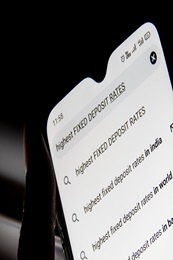
Fixed Deposits as a Safe Haven During Economic Uncertainty
October 22, 2024
In today's unpredictable economic climate, it's crucial to find safe and stable investment options. Many investors like you are seeking financial security and protection for their hard-earned money.

How to Ensure Smooth Property Registration
October 22, 2024
For a first-time home buyer, the process of property registration can seem daunting at first. However, with the right understanding and adequate preparation, you can ensure a smooth property registration experience.

How to Use Your Home Loan for Purchasing Commercial Property
October 22, 2024
Thinking of venturing into the world of commercial real estate? You're not alone. Many individuals dream of owning a commercial property as it offers lucrative opportunities for businesses and investments.

How to Clear Property Title Disputes Before Applying for a Home Loan
October 22, 2024
Before you can apply for a home loan, it is crucial to ensure that the property you wish to purchase has a clear title. Property title disputes can create legal obstacles and financial risks

Legal and Financial Aspects of Buying Agricultural Land in India
October 21, 2024
Investing in agricultural land is an attractive option for many individuals in India, offering the potential for high returns.

How to Transfer Your Home Loan to Another Bank for Better Rates
October 21, 2024
Did you know that the RBI has kept repo rate unchanged at 6.5%, the ninth time in a row? A change in the repo rate may affect your interest rates if you have a home loan with a floating interest rate.

What is the Difference Between Home Loan and Mortgage Loan
October 21, 2024
We have different types of Home Loans designed to serve different purposes.

Understanding Sub-Registrar’s Role in Property Transactions
October 19, 2024
Buying or selling a property involves exhaustive legal processes that must be carefully followed to ensure a smooth and legitimate transaction.

Understanding Circle Rates: How They Impact Property Transactions
October 19, 2024
Buying or selling a property can be a complex process, with many factors to consider. One essential element that both buyers and sellers need to understand is the concept of circle rates.

Difference Between Under Construction Vs Ready-to-Move-In Property Loans
October 19, 2024
Are you considering buying a property in India but confused about whether to opt for an under construction vs ready-to-move-in property loans? You're not alone. Many individuals face this dilemma when purchasing a home.

Difference Between Home Loan and Loan Against Property
October 19, 2024
Owning a home is a dream for many individuals, but it often requires financial assistance in the form of loans.

How to Use Your Home Loan for Home Improvement Projects
October 19, 2024
Planning to renovate your house but short on cash? Instead of taking a high-interest personal loan that can put a strain on your finances, avail a Home Improvement Loan.

The Impact of Your CIBIL Score on Home Loan Approval
October 19, 2024
Getting a Home Loan is not just about meeting income and employment criteria; banks also consider your credit or CIBIL score to determine your creditworthiness.
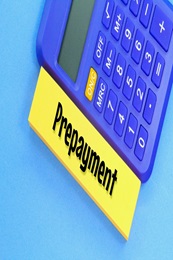
Understanding Home Loan Foreclosure and Part Payment: Pros and Cons
October 19, 2024
Let’s assume you’ve taken a home loan for a tenure of 20 years. You’re paying EMIs (Equated Monthly Instalments) against your home loan every month.

How to Use a Current Account for International Transactions
October 18, 2024
In today's interconnected world, businesses often need to engage in international transactions.

Guide to Choosing the Best Current Account for Your Business
October 18, 2024
Effective financial management is key to running a successful business, and choosing the right current account is a crucial part of this process.

What is a Mutation Certificate and Why Is It Important?
October 16, 2024
Property ownership in India involves several legal processes and documentation, including acquiring a Mutation Certificate

Difference Between Home Loan and Land Purchase Loan Explained
October 16, 2024
In India, there are different types of Home Loans, like house purchase loan, home construction loan, plot loan (land purchase loan), home improvement loan, etc. Each of these loans serves a specific purpose.

What is Loan-to-Value (LTV) Ratio?
October 16, 2024
If you're a first-time homebuyer and planning to apply for a home loan, you will come across a term LTV or Loan-to-Value ratio. First thing first - till date, no bank in India has offered 100% financing of the property value.

Government Subsidy Schemes for Home Loan: Interest Rate and Eligibility
October 16, 2024
The Government of India is on a mission to make housing affordable for all. To realise the initiative 'Housing for All', the Government launched subsidy schemes for home loans like Pradhan Mantri Awas Yojana (PMAY) in 2015 - an initiative that aims to make the concept of affordable housing a reality.

Tips for First-Time Home Buyers Applying for a Home Loan
October 16, 2024
Let's take inspiration from Neha, a first-time homebuyer who successfully secured her dream home with a Home Loan.

Two-Wheeler Loans for Adventure Bikes: What to Consider
October 09, 2024
The adventure motorcycle segment in India has been experiencing significant growth, with enthusiasts eager to explore off-road terrains and embark on long-distance journeys.

Choosing a Savings Account Based on Your Financial Personality
October 09, 2024
When managing your finances, choosing the right banking options is crucial. Two common choices are Savings Accounts and certificates of deposits (CDs). But how do you decide which one is best for you?

Savings Account vs Digital Wallet: How They Compare for Daily Use
October 09, 2024
In today's fast-paced world, both Savings Accounts and digital wallets offer convenient options for managing your finances.

Savings Account vs Certificate of Deposit: Pros and Cons
October 09, 2024
When managing your finances, choosing the right banking options is crucial. Two common choices are Savings Accounts and certificates of deposits (CDs). But how do you decide which one is best for you?

How to Use a Savings Account to Build a Financial Safety Net for Your Business
October 09, 2024
Starting and running a business can be both exciting and challenging. One of the key aspects of ensuring its success is building a strong financial safety net.

What are the Stamp Duty Charges in India?
October 09, 2024
Buying a property is an essential milestone in our lives, but it comes with its fair share of financial obligations. Apart from the EMI (Equated Monthly Instalment), additional charges like stamp duty, registration fees, legal fees, and home loan charges must be considered.

Title Deed of Property and Its Importance Explained
October 08, 2024
When it comes to buying or selling a property, one of the most crucial aspects is understanding the role of a title deed. A title deed is a legal document that establishes proof of ownership for a property.

What are The Different Types of Home Loans?
October 08, 2024
Are you planning to buy a house or a plot? Or are you planning to renovate your existing house? because there are different types of Home Loans designed to serve different purposes.

Key Documents Required for NRI Home Loans
October 08, 2024
After COVID, there has been a noticeable increase in the desire of NRIs to invest in real estate in India, not simply because of emotional -

Understanding the Role of Power of Attorney in Property Transactions
October 07, 2024
As you begin your journey into the world of real estate, it's crucial to understand the role of power of attorney in property transactions.

Understanding Property Transfer Charges in India
October 07, 2024
When you buy a property, it is not only the purchase price that you should look at. Beyond the purchase price, there are additional charges to consider such as transfer charges, property taxes, and legal fees.

Important Factors That Affect Home Loan Interest Rate
October 07, 2024
Are you also dreaming of owning a home? Thanks to affordable home loans and PMAY (Pradhan Mantri Awas Yojana – a scheme that offers interest subsidy to low- and mid-income earners)

Top Factors That Can Influence Your Home Loan Eligibility
October 07, 2024
Imagine Mr. X, a young professional with a stable job, applying for his first home loan but is surprised when his application is denied.

What to Do If Your Home Loan Application is Rejected?
October 07, 2024
Facing rejection can be disheartening, especially when it comes to your dream of owning a home.

Fixed vs Floating Home Loan Interest Rate Explained
October 15, 2024
When applying for a Home Loan, you have the option to choose between fixed and floating interest rate. Choosing any of the two can have a significant impact on your EMI (Equated Monthly Instalments).

Tips to Improve Your Chances of MSME Loan Approval
October 07, 2024
The road to securing an MSME (Micro, Small, and Medium Enterprises) loan can often feel like an uphill task. However, with proper strategy and preparedness this seemingly daunting journey could be quite straightforward.

Common Mistakes to Avoid When Applying for an MSME Loan
October 07, 2024
Starting or expanding a small business can be exciting, but securing the right funding is often the first major hurdle.

How to Open Your First Bank Account: A Step-by-Step Guide
October 05, 2024
Opening your first bank account is a major step in your financial journey. It's not just about storing your money, but also about managing your finances effectively.

How to Save for a House: A Comprehensive Guide
October 05, 2024
Whether you’ve been scrolling through real estate listings, imagining your perfect home, or you’re just starting to think seriously about buying property, one thing is clear: buying a house is one of the most significant financial decisions you’ll make. But with the right savings strategy in place, it doesn’t have to be overwhelming. Saving for a house might seem like an uphill climb, but with some practical steps and financial discipline, you’ll be well on your way to owning the home of your dreams.

Financial Planning For Beginners: A Step-by-Step Guide
October 05, 2024
Whether you're a fresh graduate starting a new job or someone looking to reorganise their savings and investments, understanding the basics of beginner financial planning is crucial.

Reinvesting in Fixed Deposits: Benefits and Drawbacks
October 05, 2024
The primary benefit of Fixed Deposits is that the returns are calculated on the basis of compound interest method.

The Difference Between Fixed Deposit (FD) and Recurring Deposit (RD)
October 05, 2024
When it comes to saving and investing, making the right choices can help you achieve your financial goals without hassles.

Understanding Fixed Deposit Interest Rates
October 05, 2024
When you invest in Fixed Deposits (FDs), rest assured you will earn guaranteed returns. FD interest rates are higher than that of Savings Accounts, which helps you maximise your savings potential.

The Role of Fixed Deposits in Funding Your Child’s Education
October 05, 2024
As parents, we all want to provide the best possible education for our children. However, financing their dreams can be a significant challenge with the rising costs of professional and international courses.

How to Calculate the Maturity Value of Your Fixed Deposit
October 04, 2024
If you’re planning to invest in Fixed Deposits (FDs), here’s a word of advice – calculate your FD maturity amount beforehand. This would help you making an informed decision like selecting the right tenure and deposit amount.

Corporate FDs vs Bank FDs: Which is Safer?
October 04, 2024
When it comes to investing, safety is a top priority for many. According to the RBI, India has over 24.23 million fixed deposits, totaling over ₹103 trillion.

The Role of Digital Savings Accounts in Making Banking Simpler and Easier
October 05, 2024
The Indian banking sector has witnessed a significant shift towards digitalisation in recent years. In India, Digital Savings Account have emerged as a cornerstone of this transformation, offering convenience,

Fixed Deposits for Diversification of Investment Portfolio
October 04, 2024
Investing is an essential part of growing your wealth and achieving financial goals.

Fixed Deposits vs Mutual Funds: Which One to Choose?
October 04, 2024
Both Fixed Deposits (FDs) and Mutual Funds are popular investment instruments in India.

Understanding DICGC Insurance: Safeguarding Your FD Investments
October 04, 2024
Fixed Deposits (FDs) have long been a popular investment choice for Indian investors. They offer guaranteed returns and are considered relatively safe.

How to Use Savings Accounts to Manage Fluctuating Income
September 29, 2024
Freelancers, commission-based workers, or those with seasonal jobs – all of them have one thing in common. They don’t have a stable income or their income fluctuates based on the flow of work.

The Future of Savings Accounts: Trends to Watch Out For
September 29, 2024
The world of finance is rapidly evolving, and advancements in banking technology are reshaping the way we manage our savings.

Savings Account vs Investment Account: Where Should You Keep Your Money?
September 29, 2024
Saving money or investing it—this is a common question among individuals who are looking to secure their financial future.

Savings Account Vs Money Market Account: Understanding the Differences
September 29, 2024
In US, money market accounts are popular. In India, we don’t have such accounts yet. Instead, we have different types of Savings Accounts to park your money and earn interest on it.

Difference Between High-Interest Savings Account and Regular Savings Account
September 29, 2024
When it comes to saving, most people turn to traditional or regular savings accounts offered by banks. However, there is another option that could potentially help you grow your savings at a faster rate – high-interest Savings Accounts.

The Role of Savings Accounts in Achieving Financial Goals
September 29, 2024
Did you know that more than 77% of Indians don't have a savings account? Yet, a Savings Account is one of the most effective tools for financial planning.

The Impact of Savings Accounts on Financial Well-being
September 29, 2024
A healthy financial life is built on the foundation of smart savings. For many, opening a Savings Account is the first step towards a healthy financial life.

How to Maximise Returns on Your Savings Account
September 29, 2024
While opening our first bank account or Savings Account, most of our parents would say, “Open a high-interest Savings Account.

How to Avoid Common Home Loan Application Mistakes
September 27, 2024
Buying a home is a significant milestone. However, navigating the home loan application process can be complex and overwhelming, if you're not well-informed. This may lead to common mistakes that could hinder your loan approval.

How to Apply for a Home Loan with Low CIBIL Score
September 27, 2024
Dreaming of owning a home is something we all dream of, but if your CIBIL or credit score is less than average, that dream might feel a bit out of reach.

How to Handle Home Loan Defaults and What to Expect
September 27, 2024
If you've taken out a Home Loan, it's important to understand the consequences of defaulting on your payments. A home loan default occurs when you fail to make your scheduled monthly payments for an extended period of time. This can happen due to various reasons such as financial difficulties, job loss, or unexpected expenses.

What is the Role of Stamp Duty and Registration Fees in Home Loan?
September 27, 2024
The process of financing a home can be complex and overwhelming, especially when it comes to understanding the role of stamp duty and registration fees. In this article, we will demystify these charges and provide you with a comprehensive guide to help you navigate through the property purchase costs and the charges involved.

How to Refinance Your Home Loan for Better Terms
September 27, 2024
Owning a home is a dream shared by many, but managing the financial aspects of it can be overwhelming.

The Impact of Interest Rate Changes on Your Home Loan
September 28, 2024
The Impact of Interest Rate Changes on Your Home Loan Home loan borrowers have been severely impacted by the increase in interest rates and consequently higher EMIs compared to just 28 months ago.

Difference Between Home Loan Pre-EMI and Full EMI Explained
September 27, 2024
Buying a home is a dream that many of us share. However, understanding the different aspects of a Home Loan can be confusing, especially when it comes to repayment options. Two common terms you'll encounter are Pre-EMI and Full EMI.

Two-Wheeler Loan for Low-Income Earners: Affordable Financing Options
September 27, 2024
For many low-income earners, owning a two-wheeler can significantly improve their quality of life and employment opportunities.

Two-Wheeler Loan Pre-Approval: A Quick Guide
September 27, 2024
The two-wheeler market in India has witnessed a phenomenal surge in recent years.

How to Switch Banks for a Better Two-Wheeler Loan?
September 27, 2024
In India, two-wheelers are not just a mode of transportation—they're a lifeline for millions, especially young professionals and those living in tier 2 and 3 cities. In fact, according to the Society of Indian Automobile Manufacturers (SIAM), India recorded over 15 million two-wheeler sales in 2022 alone, with a majority of buyers financing their purchases through loans. With such a high reliance on two-wheeler loans, it's crucial to secure the best deal.

How to Set Up a Fixed Deposit Account for a Minor
September 27, 2024
Safeguard your child's future with Fixed Deposits (FDs).

The Benefits of Fixed Deposits in Estate Planning
September 27, 2024
Life is unpredictable, and preparing for the unexpected is essential.

The Role of Fixed Deposits in Protecting Capital
September 27, 2024
In today's uncertain financial landscape, safeguarding our hard-earned money is a top priority.

Why Fixed Deposit is Considered a Safe Investment Option for Beginners?
September 27, 2024
Are you a beginner investor looking for a safe, reliable place to park your hard-earned money? Look no further than Fixed Deposits (FDs)! They are probably the perfect introductory investment vehicle for those who want to dip their toes into the world of investing without taking on too much risk.

How Digital Banking is Shaping The Future of Fixed Deposits
September 27, 2024
The surge of digital banking has revolutionised how we manage our finances, with convenient access to a wide range of financial products and services.

How to Manage Fixed Deposits in Rising Interest Rate Environment
September 27, 2024
As interest rates fluctuate, it becomes crucial to have a strategy in place to ensure your Fixed Deposits (FDs) continue to provide the desired returns.

A Study on the Evolution of Fixed Deposit Schemes in India
September 27, 2024
Fixed Deposits have always been a popular investment option in India. They offer a safe and secure way to grow your savings while earning a fixed interest rate.

How to Navigate the FD Market During Economic Uncertainty
September 27, 2024
Finding reliable investment options can be challenging during economic uncertainty.

Fixed Deposits vs Bonds: A Comparative Analysis
September 27, 2024
In the Indian investment landscape, two of the most popular options for conservative investors seeking stable returns are Fixed Deposits (FDs) and Bonds.

The Role of Digital FDs in the Post-Pandemic Era
September 27, 2024
Post COVID-19 pandemic, businesses have moved to digital adoption across various sectors, and the banking industry is no exception.

Innovations in Fixed Deposit Products
September 27, 2024
Fixed deposits have always been a reliable investment option, offering stability and assured returns.

Home Loan Tax Benefits (FY 2025-2026) Explained
December 03, 2024
One of the key advantages of taking a home loan is the array of tax benefits it provides. You can claim deductions on both the principal and interest paid during a financial year. For those unfamiliar, home loan tax deductions are available under Sections 80C, 80EE, 24(b), and 80EEA, subject to specific terms and conditions.

A Complete Checklist of Documents Required for Home Loan
September 26, 2024
The road to homeownership is a fascinating journey. Lots of planning, plenty of brainstorming, mulling over decisions, etc., the entire process may seem like a rollercoaster ride, especially when it comes to choosing the right financier.

The Importance of Certificate of Occupancy When Buying a House
September 26, 2024
When purchasing a home, there are numerous documents and certifications to consider. Among these, the Certificate of Occupancy (CO) stands out as an important piece of property certification.

Savings Account vs Checking Account: Which One Should You Choose?
September 26, 2024
When it comes to banking, two popular choices are Savings Accounts and Checking Accounts. Savings Accounts are bank accounts that allow you to park your money in a safe and secure way.

Home Loan Benefits and Eligibility Criteria
September 26, 2024
Owning a home is a dream for many, and home loans have made this dream more achievable. Leaving aside the home buying aspect, home loans come with additional benefits like tax savings.

Home Loan Insurance vs Term Policy: Which One is Better?
September 26, 2024
Home loan insurance and term insurance policy both offer protection against life's uncertainties. However, the end-usage and the intent of these two products are largely different.

Taking a Home Loan in Your 40s: Key Considerations
September 26, 2024
Buying a home is a significant milestone, especially in your 40s when you have more financial stability and clarity about your long-term goals.

Two-Wheeler Loan Subsidies: Government Schemes and Benefits Explained
September 26, 2024
Owning a two-wheeler in India has become more accessible thanks to various government loan schemes and subsidies.

Navigating Home Loan Disbursement Successfully
September 26, 2024
Navigating the journey of home loan - from approval to disbursement - can be thrilling yet daunting.

How to Avoid Mistakes in Two-Wheeler Loans
September 26, 2024
If you have been on social media platforms, you may have come across posts of customers generally cribbing about their two-wheeler loan.

Understanding the Benefits of Fixed Deposits in a Bear Market
September 26, 2024
In investing, bear markets are an inevitable part of the journey. These periods of economic downturn can be challenging for investors, causing panic and uncertainty

Two-Wheeler Loan Vs Personal Loan: Which Is Better?
September 26, 2024
When it comes to financing a new bike purchase, many find themselves torn between Two-Wheeler Loan and personal loan.

Understanding the Risks and Rewards of Fixed Deposits
September 26, 2024
When it comes to saving your money, fixed deposits (FDs) are often considered a safe option. However, like any financial product, FDs have both risks and rewards.

How to Plan Your Investments with Fixed Deposits
September 26, 2024
Are you looking for a reliable investment strategy that offers steady returns? Fixed Deposits (FDs) can be an excellent choice.

Two-Wheeler Loan in Rural Areas: Benefits and Accessibility
September 26, 2024
In India, the vast rural landscape holds immense potential for economic growth, but it faces unique challenges—especially when it comes to transportation.

Two-Wheeler Loan for New Immigrants: Building Credit and Mobility
September 26, 2024
In India, banks generally offer two types of Two-Wheeler Loans – loans for used bikes and loans for new bikes.

Steps to Diversify Your Investments with Multiple Fixed Deposits
September 25, 2024
When it comes to growing money with minimal risks, most investors turn to Fixed Deposits (FDs). With FDs, you can invest your funds in a controlled manner, knowing exactly what to expect from your investment.

Different Types Of Fixed Deposit Schemes You Should Know About
September 25, 2024
When it comes to saving and investing money, Fixed Deposits (FDs) are a popular choice among Indian households.

How to Manage Your Fixed Deposits Efficiently
September 25, 2024
Managing your finances effectively is crucial to achieve your long-term financial goals.

The Popularity of Fixed Deposits: A Safe Haven for Conservative Investors
September 25, 2024
Did you know that, on average, Indians save approximately ₹425,725.54 in fixed deposits (FDs)?

Understanding the Role of Savings Accounts in Estate Planning
September 25, 2024
When it comes to planning for the future, estate planning is just as important as establishing trust.

Savings Accounts with Auto-Sweep Facility: Optimise Your Idle Funds
September 25, 2024
Bring your idle funds sitting in your Savings Account back to life with Auto-Sweep facility.

Savings Accounts and Digital Privacy: Keeping Your Money Safe Online
September 25, 2024
In today's digital age, online banking has revolutionised how we manage our money. With just a few taps on our smartphones, we can check balances, transfer funds, and pay bills.

How to Compare Savings Account Rates and Choose the Best One
September 25, 2024
In today's competitive banking landscape, finding the best Savings Account rates can significantly impact your financial growth.

How to Use Your Savings Account for Recurring Investments
September 25, 2024
Investing in recurring investments through your Savings Account is a smart way to grow your wealth over time. By automating your investments, you can ensure consistent savings and shield yourself from emotional decisions during market fluctuations.

Savings Account for Joint Families: Managing Collective Finances Efficiently
September 24, 2024
In a nation where family values and bonds are deeply cherished, joint families remain a cornerstone of Indian society.

How to Use a Savings Account to Reduce Financial Stress
September 24, 2024
Financial stress can have a significant impact on our overall well-being. It can lead to anxiety, affect our relationships, and even cause physical symptoms.
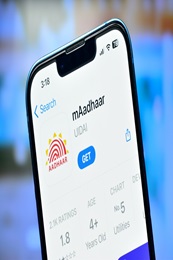
The Importance of Linking Your Savings Account with Aadhaar
September 24, 2024
In an increasingly digitised world, it is crucial to prioritise the security and accessibility of our financial transactions.

Savings Accounts and UPI Integration: A Cashless Banking Experience
September 24, 2024
Unified Payments Interface (UPI) has revolutionised the Indian financial landscape since its inception in 2016.

How to Utilise Savings Account for a Comfortable Retirement in India
September 24, 2024
When you hear the term retirement planning, your mind probably jumps to investments like mutual funds, PPF, NPS, or maybe even gold.

NRE Accounts: Transfer And Remittance Options Explained
September 24, 2024
As a Non-Resident Indian (NRI), managing your financial commitments in India can be challenging.

Two-Wheeler Loan for Young Professionals: Balancing Work and Commute
September 24, 2024
Traffic, traffic, and more traffic! All young professionals living and working in cities share a common source of disappointment

How to Save on Interest with a Short-Term Two-Wheeler Loan
September 23, 2024
In the world of two-wheeler financing, opting for a short-term loans can be a wise strategy to save on interest payments.

Comparing Two-Wheeler Loan for New vs Used Bikes
September 23, 2024
In India, banks generally offer two types of Two-Wheeler Loans – loans for used bikes and loans for new bikes.

Expert Insights: How to Choose the Right Lender for Your Two-Wheeler Loan
September 23, 2024
According to a survey report by TechSci Research, India's Two-Wheeler Loan market is likely to be USD 12.3 billion industry by 2025, suggesting an annual compounded growth of approximately 11%.

How to Balance Risk and Safety with Different Types of Savings Accounts
September 23, 2024
When it comes to saving money, one of the primary concerns is ensuring both risk management and financial security.

Joint Savings Account vs Individual Savings Account: Which One Suits Your Needs Better?
September 23, 2024
In India, many couples or parents have a joint Savings Account. Many of them say that having a joint account help them manage money in a better way.

Best Savings Account for Women: Exploring Financial Independence and Growth
September 23, 2024
Women are breaking barriers and achieving success in every field. With this rise in financial independence, suitable infrastructure is important to support women's growth.

Savings Account for High-Income Earners: Maximising Your Wealth
September 23, 2024
For high-income earners, managing wealth effectively requires a strategic approach that goes beyond traditional savings methods.

Introduction to Fixed Deposits: A Safe and Reliable Investment Option
September 16, 2024
When it comes to investing, Fixed Deposits (FDs) have long been considered a go-to option for many Indians.

How Two Wheeler Loans Can Support Sustainable Mobility
September 17, 2024
India is witnessing a surge in demand for sustainable transportation options, with electric two wheelers leading the charge.

Loan Against Fixed Deposit: How It Works
September 16, 2024
Are you looking for a quick and hassle-free way to access funds? A loan against fixed deposit could be the perfect solution.

The Role of Fixed Deposits in Retirement Planning
September 16, 2024
Retirement planning is an essential aspect of financial management that requires careful consideration and strategic investment choices.

Taxation on Fixed Deposit Interest Explained (FY 2025-26 Update)
September 13, 2024
The interest earned on Fixed Deposit is taxable as per the Income Tax Act, 1961. However, there's a gap when it comes to understanding how FD interest is taxed in India and how investors can save on their FD tax outgo.

Digital Fixed Deposits: Convenience at Your Fingertips
September 13, 2024
Digital Fixed Deposits are fast becoming a cornerstone of savvy financial planning. They offer maximum convenience allowing investors grow their savings in a secure way from the comfort of their home.

Fixed Deposits vs PPF: Which is Better for Long-Term Savings?
September 13, 2024
Both PPF (Public Provident Fund) and Fixed Deposits (FDs) are excellent long-term investment options.

Key Fixed Deposit Rules and Regulations in India: A Comprehensive Guide
September 13, 2024
Fixed Deposits (FDs) are the most popular investment instrument in India due to their stable and guaranteed returns.

Fixed Deposit Auto Renewal: Benefits and Best Practices
September 13, 2024
In Indian households, when it comes to investments, Fixed Deposits have always been a popular choice. In fact, as per SEBI data, about 95% of Indian households have parked their savings in FDs.

How Fixed Deposits Work as Collateral for Loans
September 13, 2024
Have you ever considered tapping into your Fixed Deposit when faced with financial needs? We are not talking about liquidating your FD, but using your FD as collateral to take loan or overdraft facility.

Digital vs Traditional Fixed Deposits: Pros and Cons
September 13, 2024
When it comes to saving money, choosing the right type of Fixed Deposit (FD) can make a significant difference in your financial journey. Whether it's a Digital FD or a traditional FD, each comes with its unique set of features and benefits tailored to different saving needs and preferences.

Auto Fixed Deposits Explained: A Smart Way to Boost Your Savings
September 11, 2024
Have you ever wished your savings could grow on their own while you focus on daily life? Auto Fixed Deposits might just be the solution you are looking for.

7 Benefits of Investing in Fixed Deposits
September 09, 2024
In Indian households, Fixed Deposits (FDs) are considered the most preferred investment choice. FDs.

Factors to Consider When Choosing a Term Deposit Account
September 09, 2024
When it comes to growing your savings, term deposits are a popular option that offers stability and capital preservation.

The Benefits of Having Multiple Savings Accounts
September 09, 2024
In today's complex financial landscape, having multiple Savings Accounts has become an increasingly popular strategy for effective money management.

Savings Account for Low-Income Earners: Tips to Start Saving
September 09, 2024
Daily expenses are on the rise. If you're not saving money today, you may find it difficult to manage your financial life in the future. It becomes far more challenging for low-income earners to find ways to save.

Savings Account for Retirees: Ensuring a Comfortable and Secure Future
September 10, 2024
As retirement approaches, it is important to have a well-rounded financial plan that considers various investment options.

NRO Account Compliance: A Complete Guide
September 10, 2024
NRO (Non-Resident Ordinary) Accounts allow NRIs (Non-resident Indians) to manage their income or deposits generated in India.

Savings Account with Overdraft: Your Safety Net for Emergencies
September 10, 2024
Life is full of unexpected surprises, and sometimes those surprises come with a hefty price tag. Whether it's an unforeseen medical expense.

Savings Account for Medical Expenses: Staying Prepared for Health Emergencies
September 10, 2024
When it comes to our health, we all want the best care possible. However, rising healthcare costs, have impacted millions of families in India. In fact, the country experienced a medical inflation rate of 14% in 2021,

How Savings Account Can Help Entrepreneurs Fund Their Business Dreams
September 10, 2024
Starting a business can be an exhilarating endeavor, but it requires financial investment. While many entrepreneurs seek external funding sources, such as loans or investors, another viable option is to fund your business using your own savings

Savings Accounts for Senior Citizens: Manage Your Finances as a Senior with Ease
September 10, 2024
As you approach retirement, it's crucial to have a financial plan in place to ensure a secure future. Having a dedicated Savings Account for Senior Citizens can help you build a retirement corpus with ease.

Savings Account for Millennials: Start Saving Early
September 09, 2024
In a world marked by uncertainties and constant challenges, the significance of nurturing a healthy savings habit cannot be emphasised enough.

Joint Savings Account: A Guide to Managing Money as a Couple
September 09, 2024
Managing finances as a couple is an essential part of building a life together. From making decisions about vacations and long-term goals to handling day-to-day expenses,

How to Avoid Hidden Charges in Two Wheeler Loans
September 09, 2024
Two-Wheeler Loans offer a convenient way to finance your dream bike, but hidden charges can significantly increase the overall cost. Understanding and avoiding these extra costs is crucial for making an informed borrowing decision.

How to Use a Two-Wheeler Loan to Build Financial Discipline
September 09, 2024
For millions of Indians, owning a two-wheeler is not just about convenience - it's a symbol of freedom and self-reliance.

Understanding Two Wheeler Loan Tenures: Which Term is Right for You?
September 09, 2024
Applying for a two-wheeler requires careful consideration. You need to take certain factors like your repayment capacity, loan amount, interest rate.

How CIBIL Score Impacts Your Two-Wheeler Loan Approval
September 08, 2024
If you're planning to buy a two-wheeler and need a loan, understanding the role of your CIBIL or credit score is important.

Fixed or Floating Interest Rate Two-Wheeler Loan: Which One Should You Choose?
September 08, 2024
Generally, banks offer customers two types of Two-Wheeler Loans - floating interest rate loans and fixed interest rate loans.

Best Tips to Reduce Your Two-Wheeler Loan EMI
September 08, 2024
Mr. X has an ongoing Two-Wheeler Loan. Every month he spends around ₹70,000 on loan EMI. According to Mr. X, the EMI obligations are causing financial stress.

How Two-Wheeler Loan Balance Transfer Works
September 08, 2024
Are you stuck with a high-interest Two-Wheeler Loan? In such situations, you can opt for Two-Wheeler Loan Balance Transfer.

Two-Wheeler Insurance Explained
September 08, 2024
Are you considering buying a two-wheeler? While it's exciting to own a bike, it's crucial to protect yourself from potential risks on the road.

Two-Wheeler Loan Top-Up: How to Get Additional Funds
September 08, 2024
Abhishek has an ongoing two-wheeler loan. He has used the amount to purchase a two-wheeler of his choice.

How to Refinance Two-Wheeler Loan Explained
September 07, 2024
Arun has a two-wheeler loan going on against his bike. However, he's not happy with the interest rates and other terms of conditions of his current loan account.

How to Choose the Best Two-Wheeler Loan for Your Needs
September 07, 2024
Are you planning to buy a two wheeler and need financial assistance? You can consider taking a two-wheeler loan. Such loans offer lower interest rates and require minimal documents compared to personal loans.

6 Best Two-Wheeler Loan Repayment Strategies to Pay Off Your Loan Faster
September 07, 2024
Planning to paying off your two-wheeler loan early? We have compiled a list of best two-wheeler loan repayment strategies that can help you clear your loan faster.

Two-Wheeler Loan for Self-Employed: Eligibility and Tips
September 07, 2024
Two-wheeler Loans are available for both salaried and self-employed individuals. For the salaried, two-wheeler loan application process is fairly straightforward.

Latest Trends in Two Wheeler Loans 2025: What To Expect
September 07, 2024
Are you considering purchasing a new motorcycle? With motorcycles being the most preferred mode of commute in India, it's no surprise that many people turn to two-wheeler loans to fulfil their dreams of owning a bike.

Fixed Deposits for Wealth Preservation: Secure Your Financial Future
September 06, 2024
When it comes to managing our wealth, we often focus on wealth creation but tend to overlook the crucial step of wealth preservation.
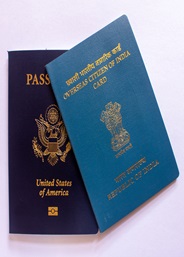
Fixed Deposits for NRIs: Features And Benefits
August 08, 2024
As an NRI, you may be looking for secure and lucrative investment options to grow your savings.

5 Tips on How to Negotiate Better Terms for Your Two-Wheeler Loan
August 20, 2024
Planning to purchase your favourite bike but short on cash? Availing a two-wheeler loan may help solve the problem.

How to Calculate Interest on Fixed Deposits: The Compounding Effect
August 08, 2024
Savings Accounts offer a safe gateway to park and grow your money. But, if you want to maximise your savings,

Short-Term vs Long-Term Fixed Deposits: Making the Right Choice for Your Financial Goals
August 08, 2024
In the last few years, there has been a spike in the number of investors investing in Fixed Deposits (FDs).

Advantages of Fixed Deposits for Small Business Owners
August 08, 2024
Starting and expanding a small business requires financial support. As an entrepreneur, you may be wondering about the best financing options available to you.

Understanding Fixed Deposit Nomination Rules and Process
August 07, 2024
Have you ever considered who will manage your Fixed Deposit investments if something unexpected happens to you? At the time of FD account opening,

How to Choose Between Callable and Non-Callable FDs
August 07, 2024
Over the past couple of years, Fixed Deposits (FDs) have regained their stronghold as the number one investment instrument - thanks to the rising interest rates and the security they provide.

Non-Callable Fixed Deposits: Benefits and Limitations Explained
August 07, 2024
Fixed Deposits have long been a popular choice for investors looking for stable returns with minimal risk.

Understanding Fixed Deposit Maturity and FD Renewal Options
August 07, 2024
When it comes to investing your money, Fixed Deposits (FDs) are a popular choice among Indians.

The Power of Compounding: How Compound Interest Helps Your FD Grow
September 13, 2024
The Power of Compounding – a phrase commonly used when talking about Fixed Deposits (FDs).

Top Reasons to Choose Fixed Deposits for Secure Investments and Stable Returns
August 06, 2024
Are you looking for a secure way to invest your hard-earned money with stable returns? If so, you’re not alone.

Fixed Deposit Receipts Explained
August 06, 2024
Fixed Deposit Receipts—ever wondered what they are all about? Commonly known as FDRs, these documents act as a legal proof of your Fixed Deposit investment with the bank.
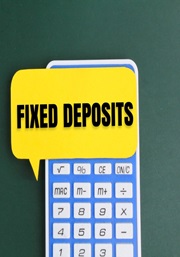
How to Use Online Fixed Deposit Calculators to Calculate FD Returns
August 05, 2024
Check your Fixed Deposit (FD) returns quickly and plan your investments in a better way with the help of online Fixed Deposit Calculators.

Understanding Callable Fixed Deposits (FDs): Features and Benefits Explained
August 05, 2024
When it comes to investing, individuals often seek safe and predictable options to grow their savings.

Difference Between Cumulative and Non-Cumulative Fixed Deposits Explained
August 04, 2024
When it comes to investing your hard-earned money, Fixed Deposits (FDs) are a popular choice for many. They offer a safe and reliable way to earn steady returns with minimal risk.

How to Get the Best Fixed Deposit Interest Rates
August 04, 2024
Everyone wants to grow their savings, right? One reliable method is through Fixed Deposits (FDs). With FDs, you can enjoy fixed returns elevated by the power of compounding (earning interest on interest).

Premature FD Withdrawal: Rules and Penalty Charges
August 04, 2024
Premature withdrawal of Fixed Deposit (FD) means you partially or completely withdraw your deposit amount before the maturity period. Banks offer such facilities for callable FDs, where you can withdraw funds before the deposit tenure.

Two-Wheeler Loan for Low Credit Score: Best Tips for Loan Approval
August 03, 2024
Are you dreaming of owning your own two-wheeler but low or poor credit score holding you back? While having a satisfactory credit score is important for securing better deals on bike loans, you can still get a loan even if your credit is not in the best shape.

Documents Required for Two-Wheeler Loan: A Complete List
August 03, 2024
A two-wheeler offers flexibility and convenience, perfect for urban and semi-urban India. Whether for daily commutes or weekend adventures, owning one can truly enrich your lifestyle

Two-Wheeler Loan Eligibility Criteria and Requirements Explained
August 03, 2024
Dreaming of owning a two-wheeler? Whether it's a bike or a motorcycle, turning that dream into reality requires careful financial planning

A Step-by-Step Guide on How to Apply for a Two-Wheeler Loan
August 02, 2024
Are you planning to own a bike but short on funds? With a two-wheeler loan, you can make that dream a reality. But if you're unsure about the loan application process, don't worry.
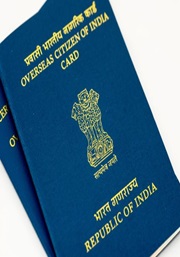
How to Open an NRO Savings Account: A Step-By-Step Guide
August 02, 2024
If you are a Non-Residential Indian having an income stream in India and want a hassle-free way to manage your earnings, opening an NRO Savings Account is may help.

Two-Wheeler Loan Minimum Down Payment: How Much Should You Pay?
August 01, 2024
Dreaming of owning a two-wheeler that can add convenience and speed to your daily commute

Two Wheeler Loan EMI vs Lump Sum Payment: Which is Better?
August 01, 2024
When purchasing a two-wheeler, many people find themselves debating whether to opt for a Two-Wheeler Loan

Benefits of Taking a Two-Wheeler Loan
August 01, 2024
Owning a two-wheeler is a dream for many people in India.

Two Wheeler Loan for First-Time Buyers: A Beginner’s Guide
August 01, 2024
Whether it's for commuting to work, exploring the city, or simply enjoying the freedom of the open road

Pros and Cons of Two-Wheeler Loan Prepayment Explained
August 01, 2024
Do you have a two-wheeler loan? Are you considering closing it early?

How to Open Tax-Saver FD Online
August 01, 2024
If you're looking for a safe and secure way to save on taxes while growing your wealth,

Tax-Saver Fixed Deposits: Benefits and Features
August 01, 2024
As far as old tax regime is concerned, no changes was announced in the Union Budget 2024.

Savings Account for Kids: Teaching Financial Literacy Early
July 31, 2024
The earlier you introduce your children to the importance of financial management, the better it is for their future.

How to Improve Credit Score for Two Wheeler Loan
July 30, 2024
Your credit score determines your creditworthiness.

Understanding Two-Wheeler Loans: A Complete Guide
July 30, 2024
In India, it's safe to say two-wheelers have secured their place as a favourite vehicle of choice when it comes to every day commute.

Savings Account for Students: Start Your Financial Journey
July 30, 2024
Student life is often bittersweet. It’s replete with endless intellectual explorations, late-night study sessions, and that undeniable dream to make it big.

How a High-Interest Savings Account Can Help You Maximise Your Savings
July 30, 2024
Are you looking for a way to grow your savings faster?

How to Use FD Laddering Strategy to Maximise Your Returns
July 30, 2024
Most of us invest in fixed income instruments like Fixed Deposits, but very few invest ‘smartly’.
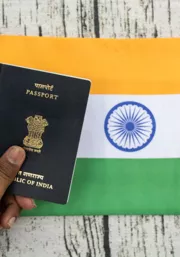
NRI FD Rates: Strategies for NRIs to Maximise Returns with Higher FD Rates
July 30, 2024
In an online forum, a person, who claimed to be an NRI asked, why invest in an NRO Account when you already have an NRE Accounts
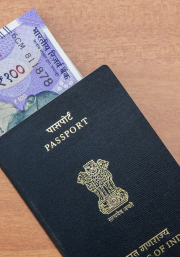
NRO Savings Account Management: Best Tips and Practices
July 30, 2024
Many NRIs have more than just a single income stream, some of which may extend beyond borders.

NRO and NRE Account Tax Implications: A Comprehensive Guide
July 30, 2024
NRI Accounts offer a seamless platform for NRIs to manage their money in India.
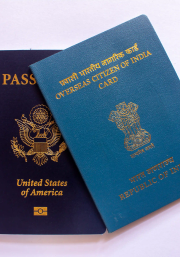
Understanding NRE Savings Accounts: Features and Benefits Explained
July 30, 2024
If you are a non-resident Indian (NRI) looking for a convenient way to manage your foreign earnings in India, an NRE (Non-Resident External) Savings Account is worth considering.

How to Save for Big Purchases: Tips and Strategies
July 30, 2024
There's a saying that the art is not in making money, but keeping it.

9 Tips to Choose the Best Savings Account
July 30, 2024
Saving money is essential for establishing financial stability and building a secure future.

Decoding Savings Account vs Fixed Deposit: Making Smart Investment Choices
July 30, 2024
In India, the two most common savings instruments are Savings Accounts and Fixed Deposits (FDs).

Emergency Savings: Building a Financial Cushion with Emergency Fund
July 24, 2024
Let's assume Mr. X has a well-paying job. He is the sole breadwinner for his family of 6, which includes
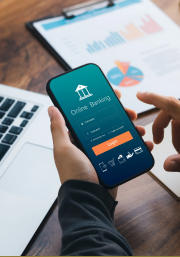
The Era of Digital Savings Accounts: Banking from Your Smartphone
July 24, 2024
In today's fast-paced world, where technology has transformed various aspects of our lives

Savings Account Benefits You Might Not Know About
July 24, 2024
Your Savings Account is not just a cash repository. It carries

Understanding Term Deposit Rates: A Comprehensive Guide to Smart Investing
July 24, 2024
Whether you're just starting your financial journey or looking to refine your investment strategy,

Maximising Your Golden Years: Guide to Choosing the Best FD for Senior Citizens
July 16, 2024
The seniors are the pillars of our society. Their contribution towards shaping the future of the nation is unmatched. Recognising this, most financial institutions offer additional interest rates for Senior Citizen Fixed Deposit (FD).

Investing for Business Growth: Exploring Corporate Fixed Deposit Interest Rates
July 23, 2024
When it comes to investments, fixed deposits (FDs) are a popular choice among risk-averse investors.

Quick Gains: Unveiling Short-Term FD Rate Options
July 23, 2024
Looking for a quick and reliable way to earn higher returns on your savings? You can consider investing in short-term Fixed Deposits (FDs). With attractive interest rates and flexible tenure options ranging from 7 months to 1 year, such FDs could help you grow your wealth without parking your funds for too long.
In this blog, we have dissected the concept of short-term FDs and the steps you should take to find the best short-term FD rates to maximise your returns. Let's dive in!

Difference Between NRE and NRO Accounts: Which Savings Account Should You Choose?
July 23, 2024
When it comes to managing money in India from abroad, Non-Residential External (NRE) and Non-Resident Ordinary (NRO) Savings Accounts are two popular options. But which one to choose? Understanding the difference between the two can help you make the right choice.
In this article, we have compared NRE Vs NRO Savings Accounts, covering various aspects such as tax implications, repatriation, features, and more. Let's dive in!

Understanding NRO Account Repatriation Rules
July 23, 2024
Managing income earned in India from overseas isn't that complex anymore for NRIs, thanks to NRO Accounts. However, for a smooth transfer of funds from your Indian bank account to your overseas bank account, it's necessary to understand the repatriation rules. To begin with, funds in an NRO Account are not fully repatriable.
But what does this mean and how does it affect investors? In this comprehensive repatriation guide, we will walk you through the repatriation process, covering the Foreign Exchange Management Act (FEMA) guidelines and RBI regulations.

How to Choose the Best NRE Savings Account for Higher Interest Rates
July 16, 2024
For NRIs (Non-resident Indians), NRE bank accounts are the perfect solution for managing their foreign income in India. While NRE Fixed Deposits are a go-to option for many NRIs to park their overseas earnings in India and earn tax-free interest, NRE Savings Account allows investors to build corpus while enjoying benefits like fully repatriable funds, competitive rates, easy transfer of funds and more.

5 Ways Your Savings Account Can Simplify Your Travel Plans
July 16, 2024
Ask anyone about travel planning and they would tell you the importance of taking your finances into account. How daunting it may sound, with a little financial discipline and the right strategies, you can save up for your dream vacation sooner than you think. But how to start saving? Well, consider opening a Savings Account as a stepping stone.

How to Secure the Best NRE FD Rates for Maximum Returns
July 16, 2024
Managing foreign income in India while residing overseas would have been a daunting task if not for NRE Fixed Deposits. With NRE FD account, you can deposit your foreign income in India and earn interest on it.
However, to maximise your earnings, follow the smart strategies as outlined in this blog. We have provided a few pro tips on how to find best NRE FD rates so you can make an informed decision.

Digital Investing Made Simple: Your Roadmap to Opening an FD Account Online
July 16, 2024
Beat the queue and open an FD online in few easy steps. Thanks to digital banking, you can now open a fixed deposit account from anywhere. The entire process is extremely simple, straight-forward, 100% online and safe; all you need is a proper Internet connection.
In this guide, we will walk you through the step-by-step process of opening an FD online.

Short Term Deposits - Features and Benefits Explained
July 16, 2024
If you have a short-term financial goal to meet, investing in short-term fixed deposits could help. For instance, if you think you need funds after a year to meet a specific goal, you can book an FD from 7 days to 12 months, earn interest and withdraw cash upon maturity.
In this article, we have highlighted the key features and benefits of short-term deposits.
How to Choose the Best FD Plan to Maximise Returns
July 16, 2024
Investing in fixed deposits (FDs) is a popular choice for investors seeking assured returns. However, with so many FD products available, it may seem a bit daunting to select the best FD plan that's aligned to your investment goals. In this comprehensive guide, we will walk you through the factors to consider, provide real-life examples, and offer sample calculations to help you make an informed decision while choosing a fixed deposit product.

Maximise Your Savings: Understanding the Features of Best Fixed Deposit Schemes
July 16, 2024
When it comes to investing your hard-earned money for better returns, fixed deposits (FDs) are often considered one of the best investment options in India. So, if you're starting your FD investment journey, this blog may pique your interest.
In this article, we have provided all the features of the best fixed deposit schemes in India so you can make an informed decision.

6 Proven Tips for Best FD Returns
July 16, 2024
When it comes to investments, fixed deposits (FDs) are a popular choice among risk-averse investors. FDs offer guaranteed interest rates, making them a secure investment option.
However, to truly maximise your FD returns, it's necessary to understand the various factors that can influence your earnings. In this blog post, we have explored some smart tips and strategies that can help you get best FD returns. Let's dive in!

New FD Rates Can Impact Your Investment Decisions - Here's How
July 16, 2024
It's safe to say, for decades, Fixed Deposits (FDs) have been a trusted choice for risk-averse investors including senior citizens as a secure avenue to park and grow their savings. That being said, whenever new FD rates are announced, investors rarely take advantage of the situation to maximise their savings. Read this blog to understand how to take advantage of new FD rates.

Decoding Term Deposit Interest Rates
July 16, 2024
Term deposits are fixed-period investment instruments, meaning you deposit a fix sum of money monthly or in lump sum for a fixed tenure and earn interest on it. For example, Fixed Deposits (FDs) and Recurring Deposits (RDs) are just different types of term deposits. In this article, we have debunked the factors influencing term deposit interest rates so you are well-informed when booking an FD.

Disclaimer for Blogs
The contents herein are only for information purpose and does not amount to an offer, invitation or solicitation to buy or sell, and are not intended to create any legal rights or obligations. This information is subject to updation, completion, amendment without notice and is not intended for distribution to, or use by, any person in any jurisdiction where such distribution or use would be contrary to law or would subject Ujjivan Small Finance Bank Limited or its affiliates to any licensing or registration requirements.
